Initiative on the Future of Transatlantic Relations
Understanding a changing relationship
Understanding a changing relationship
Transatlantic relations are often said to be in perpetual crisis. They have also been subject to routine renewal. However, today and into the future, the change is deeper. The political, military, economic, and ideological structures underpinning the relationship have evolved. In the HCSS Initiative on the Future of Transatlantic Relations, we study the history and evolution of the transatlantic relationship, looking to understand the deeper ideas and structures behind the changes in the U.S.-European relationship.
In the Initiative, we explore the political and ideological underpinnings of the foreign and defence policy that governs the transatlantic relationship. We analyse the economic relationship between Washington and Brussels, with a special focus at the EU-level on trade. On defence, we focus the lens on NATO both as an international alliance and an organisation unto itself. The aim is to understand the transatlantic relationship in the broadest possible context.
HCSS Research on Trans-Atlantic Relations
Op 13 november organiseerden The Hague Centre for Strategic Studies en The Clingendael Institute in samenwerking met het Ministerie van Buitenlandse Zaken en Ministerie van Defensie de jaarlijkse Dag van Progress. Het centrale thema van de dag stond in het teken Europese soevereiniteit in tijden van veranderende trans-Atlantische verhoudingen, en wat hierin de kansen en uitdagingen zijn voor Nederland en Europa. Samen met onderzoekers, beleidsmakers en strategische denkers verkenden we wat dit betekent voor Europa’s strategische autonomie, defensie-industrie en technologische weerbaarheid.
Greenland’s critical raw materials are attracting global attention – but will the EU and US step up, or will China fill the void? Assistant analyst Julie Jeuken investigates EU and US bilateral engagements with Greenland, finding that both share similar goals yet fall short of Nuuk's expectations. The snapshot calls for a Greenland-centred approach to transatlantic cooperation: aligning efforts with the island’s ambitions, leveraging renewable energy in mining, and coordinating with countries already active in the sector.
This new HCSS report by strategic analyst Davis Ellison concludes that the days of relying on the U.S. as the primary guarantor of European security may be coming to an end. The transatlantic partnership will not disappear overnight, but significant changes are underway. Europe must prepare for a future where it will play a much larger role in its own defence and security affairs.
This letter to Allied governments proposes a Transatlantic Compact to stimulate and facilitate reconfirmation of the Alliance’s critical importance to the security of all the Allies while guiding the way for NATO transformation. It is also a substantive roadmap with specific capacity benchmarks and metrics that calls upon the Allies to focus at the 75th Anniversary Summit in Washington on the requirements necessitated by the new Russian threat and to accelerate progress towards fulfilling NATO Agenda 2030 and a more balanced and effective Alliance defense and deterrence.
The rapid intensification of geopolitical disorder and growing number of threats demand a greater role from the Royal Netherlands Navy (RNLN) and its allies. But European naval forces declined sharply after the Cold War, raising questions about the current state of Dutch and European naval capabilities. In light of the recent political and military ambitions, the RNLN will therefore face a series of difficult choices when it comes to future investments and strategy. This new HCSS report by Paul van Hooft, Davis Ellison and Frederik Mertens seeks to explore these questions, and offers a series of recommendations that may help answer them.
This paper argues that Europeans need to more clearly formulate their objectives and develop policies based on a realistic view of their capabilities before embarking on a long-term commitment in the Indo-Pacific. This paper examines three distinctive objectives 1. upholding the maritime order, 2. ensure that Europe maintains access to key Asian economies, and 3. support for U.S. hegemony.
The creation of AUKUS has brought to the surface a worrying rift between Europe and the US. What does this mean for the future of transatlantic cooperation? This snapshot by Benedetta Girardi and Paul van Hooft explores the many ways in which the creation of AUKUS affected European engagement in one of the most important regions in the world, the Indo-Pacific.
Europe’s geopolitical environment is evolving. In response, the EU is inclined to pursue a more independent and assertive international role, but many questions remain about the future of European strategy. In this forum, thirteen scholars, from a wide variety of national and disciplinary backgrounds, address key challenges for European strategy, including in the areas of defense, trade, international norms, energy diversification, and relations with other major powers.
Sven Biscop (Egmont Institute) writes European strategy should be moderate when possible: pursuing interests by working w/others. But Europe must stand up for its interests when others act as rivals.
David Criekemans contends decarbonization & energy transition will have impact far beyond climate change. It should play key role in debate about strategic autonomy & European strategy.
Henrik Larsen writes success in tech arena must be cornerstone of European strategic autonomy but Europe faces big challenge esp. from China in developing tech norms & competitive tech industries.
Michiel Foulon argues European trade strategy should strike balance between accommodating legitimate concerns of economic nationalists & maintaining benefits of rules-based international trade.
European strategic autonomy is necessary as US shifts focus to Indo-Pacific, Paul van Hooft writes. Europe should do more for its own security in ways bolstering transatlantic alliance e.g. investing in conventional deterrence vis-à-vis Russia.
Trineke Palm argues that normative power is an essential instrument in the EU’s foreign policy toolbox and should play a central role in debates about strategic autonomy.
Dr Brian G. Carlson (Center for Security Studies, ETH Zürich) discusses how recent events regarding Russia raise alarm bells for European security. These pressing security challenges for Europe will remain, while the US’s role in Europe’s defense changes.
Dr Daniel Fiott (EU Institute for Security Studies) argues European leaders must reconsider how to manage crises in the various (non-)traditional security domains. And that Europe must “assume more of a role for its own territorial security.”
Dr Monika Sus (Polish Academy of Sciences) argues if the EU Strategic Compass is to rectify some of the 2016 EU Global Strategy’s deficiencies, the Strategic Compass must meet three requirements: inclusivity, integration, and implementation.
Max Smeets argues when it comes to offensive cyber capabilities NATO allies are increasingly diverging. As a remedy a NATO MoU should be drafted to enhance cooperation and to improve the effectiveness of disrupting and deterring adversaries’ operations in cyberspace.
Barry Posen argues the US needs a different kind of strategic relationship with Europe in which Europe assumes primary responsibility for its own defense. Europe being able to protect itself from Russia would free US resources, not least for competition with China.
Shaun Breslin argues we need new vocabulary to describe the international system and Europe’s role within it, especially its relationship with China. We should stop using the Cold War lexicon because terms like bipolarity don’t capture the complexity of the new geopolitical landscape.
Europe is inclined to pursue a more independent and assertive international role in response to profound changes in the geopolitical landscape, but it faces big questions about strategic autonomy, the Union’s complex processes and institutions & the nature of European global influence.
The global balance of power is changing rapidly, and the multilateral system is under pressure. Erosion or even collapse of the multilateral system could have disastrous consequences for the Netherlands. In this new study Rob de Wijk and his co-authors illustrate how the Netherlands can help breathe new life into the international system and prevent its impending collapse.
"Als het multilateraal systeem instort, zou dit voor een open land als Nederland catastrofale gevolgen voor de economie en de veiligheid hebben." – Rob de Wijk
Het multilaterale systeem, waar Nederland onderdeel van is, levert ons ontzettend veel op. Zo boekte Nederland tegenover een bijdrage van €5,4 miljoen aan de…
On June 30th, The Hague Centre for Strategic Studies (HCSS) and the Netherlands Defence Academy (NLDA), hosted a Global Expert Symposium on NATO’s Warfighting Capstone Concept (NWCC), in coordination with NATO’s Supreme Allied Commander Transformation (SACT). At the Symposium the NWCC Team presented unclassified findings from the Capstone Concept, followed by discussions between experts. Now, HCSS and the NLDA present the key findings of the Symposium.
While many fixate on the South China Sea, the vast Indian Ocean region (IOR), stretching from East Africa to South East Asia, and down to Australia, has become a tense multipolar security space. Foreign military facilities and naval forces are proliferating around the Arabian Peninsula, writes HCSS Subject matter expert Richard Ghiasy in a new snapshot.
The global challenges caused by the Covid-19 crisis call for a combined effort of nations worldwide; however, the pandemic unfolds against the backdrop of a world that is increasingly characterized by great power competition. This new paper by HCSS and DISCvision highlights possible future interplays between nations in…
The economic relevance of space is growing, and interstate competition is heating up. Satellites are key to the Netherlands’ military capabilities, and space is also likely to play a role in the global energy transition. Our new strategic alert explores the threats and opportunities of space from the Dutch perspective.
Navigating the changing global environment requires first and foremost a keen understanding of changes in Dutch foreign relations. The Dutch Foreign Relations Index (DFRI) measures the relationship between the Netherlands and other countries over time. This can help in identifying potential partners as well as potential adversaries in the pursuit of Dutch foreign policy objectives. It is part of our upcoming Strategic Monitor 2019-2020.

Former Canadian prime minister Pierre Trudeau once remarked that “Living next to [the U.S.] is in some ways like sleeping next to an elephant…one is affected by every twitch and grunt.” Shifts in U.S. foreign and security policy affect alliances the world over, shaping regional dynamics and driving calculations across capitals. We analyse these shifts in U.S. policies in the diplomatic, economic, and military spheres, and consider their impact on the European scene. Our transatlantic team closely monitors and investigates the executive, legislative, and judicial developments in Washington, as well engages closely with the non-government expert community to peel back the layers of decisions and the thinking that informs them.
NATO remains core to the transatlantic relationship. The alliance with the U.S. remains the organising principle for much of Europe. But NATO is also evolving and is itself navigating the growing pains of an organisation in the changing European security architecture. We explore this evolution in both the international and institutional contexts, from the high political to the military operational levels. This focus on NATO includes an emphasis on nuclear policy, the politics of defence planning, and the political economy of the alliance.


Transatlantic relations cannot be solely reduced to the alliance with Washington. Europe’s relationship with Canada, with security issues in the Caribbean, and with South America are also important factors. From the EU-Mercosur trade agreement to the Comprehensive Economic and Trade Agreement with Canada, diversifying economic ties has become a priority on both sides of the Atlantic. As the great powers continue to pursue competition with one another, multiple alignments within and between groups of small and middle powers will only become more important. We include a broad outlook on what constitutes transatlantic affairs within the Initiative, reflecting the perspectives of Ottawa, Santiago, and everywhere in between.
Catch up on the latest news, analyses, podcast and media appearances from HCSS experts on Transatlantic Relations.
 https://hcss.nl/wp-content/uploads/2025/12/BNR-De-Alliantie-Rob-de-Wijk.png
572
880
Britt de Cuijper
https://hcss.nl/wp-content/uploads/2021/04/HCSS_Beeldmerk_Blauw_RGB1200-ppi-e1619025866259-300x300.png
Britt de Cuijper2025-12-12 10:29:062025-12-12 14:30:12BNR De Alliantie: Trump dumpt Europa
https://hcss.nl/wp-content/uploads/2025/12/BNR-De-Alliantie-Rob-de-Wijk.png
572
880
Britt de Cuijper
https://hcss.nl/wp-content/uploads/2021/04/HCSS_Beeldmerk_Blauw_RGB1200-ppi-e1619025866259-300x300.png
Britt de Cuijper2025-12-12 10:29:062025-12-12 14:30:12BNR De Alliantie: Trump dumpt Europa https://hcss.nl/wp-content/uploads/2025/12/Benedetta-Girardi-Indo-Pacific-podcast.png
572
880
Britt de Cuijper
https://hcss.nl/wp-content/uploads/2021/04/HCSS_Beeldmerk_Blauw_RGB1200-ppi-e1619025866259-300x300.png
Britt de Cuijper2025-12-08 08:00:002025-12-08 10:36:34Benedetta Girardi | The Indo-Pacific In Focus: What is the Indo-Pacific?
https://hcss.nl/wp-content/uploads/2025/12/Benedetta-Girardi-Indo-Pacific-podcast.png
572
880
Britt de Cuijper
https://hcss.nl/wp-content/uploads/2021/04/HCSS_Beeldmerk_Blauw_RGB1200-ppi-e1619025866259-300x300.png
Britt de Cuijper2025-12-08 08:00:002025-12-08 10:36:34Benedetta Girardi | The Indo-Pacific In Focus: What is the Indo-Pacific? https://hcss.nl/wp-content/uploads/2025/11/Dag-van-Progress-5.png
572
880
Stephanie Govaerts
https://hcss.nl/wp-content/uploads/2021/04/HCSS_Beeldmerk_Blauw_RGB1200-ppi-e1619025866259-300x300.png
Stephanie Govaerts2025-11-28 11:34:472025-11-28 11:35:59Dag van Progress 2025 | Key Takeaways HCSS & Clingendael
https://hcss.nl/wp-content/uploads/2025/11/Dag-van-Progress-5.png
572
880
Stephanie Govaerts
https://hcss.nl/wp-content/uploads/2021/04/HCSS_Beeldmerk_Blauw_RGB1200-ppi-e1619025866259-300x300.png
Stephanie Govaerts2025-11-28 11:34:472025-11-28 11:35:59Dag van Progress 2025 | Key Takeaways HCSS & Clingendael https://hcss.nl/wp-content/uploads/2025/11/Benedetta-Girardi-EE-Times-1.png
572
880
Britt de Cuijper
https://hcss.nl/wp-content/uploads/2021/04/HCSS_Beeldmerk_Blauw_RGB1200-ppi-e1619025866259-300x300.png
Britt de Cuijper2025-11-21 14:13:512025-11-24 12:17:31Benedetta Girardi | EE Times: Dutch Clampdown on Nexperia Puts Europe’s Chip Sovereignty Strategy to the Test
https://hcss.nl/wp-content/uploads/2025/11/Benedetta-Girardi-EE-Times-1.png
572
880
Britt de Cuijper
https://hcss.nl/wp-content/uploads/2021/04/HCSS_Beeldmerk_Blauw_RGB1200-ppi-e1619025866259-300x300.png
Britt de Cuijper2025-11-21 14:13:512025-11-24 12:17:31Benedetta Girardi | EE Times: Dutch Clampdown on Nexperia Puts Europe’s Chip Sovereignty Strategy to the Test 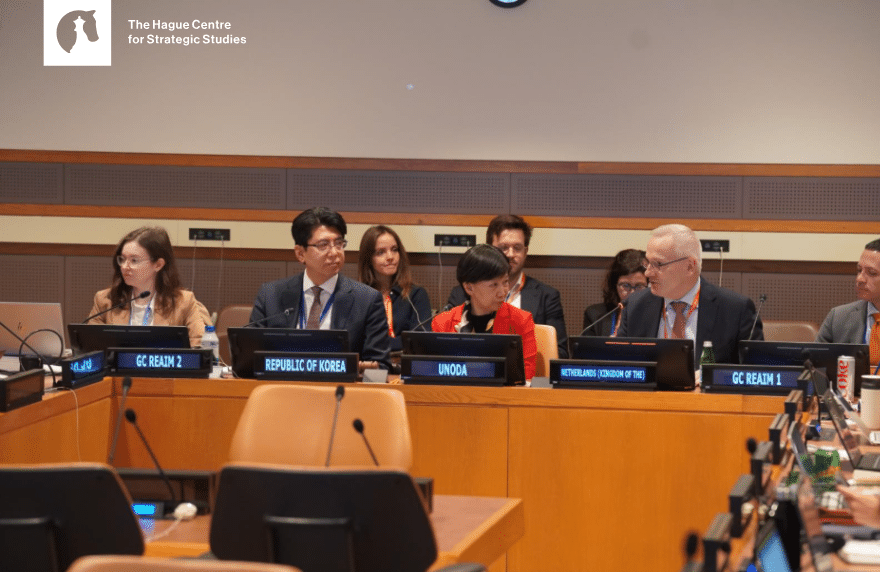 https://hcss.nl/wp-content/uploads/2025/11/Sofia-Romansky-New-York-GC-REAIM.png
572
880
Britt de Cuijper
https://hcss.nl/wp-content/uploads/2021/04/HCSS_Beeldmerk_Blauw_RGB1200-ppi-e1619025866259-300x300.png
Britt de Cuijper2025-11-19 13:43:362025-11-20 09:35:14United Nations | Responsible by Design: A Conversation with the Global Commission on Responsible AI in the Military Domain
https://hcss.nl/wp-content/uploads/2025/11/Sofia-Romansky-New-York-GC-REAIM.png
572
880
Britt de Cuijper
https://hcss.nl/wp-content/uploads/2021/04/HCSS_Beeldmerk_Blauw_RGB1200-ppi-e1619025866259-300x300.png
Britt de Cuijper2025-11-19 13:43:362025-11-20 09:35:14United Nations | Responsible by Design: A Conversation with the Global Commission on Responsible AI in the Military Domain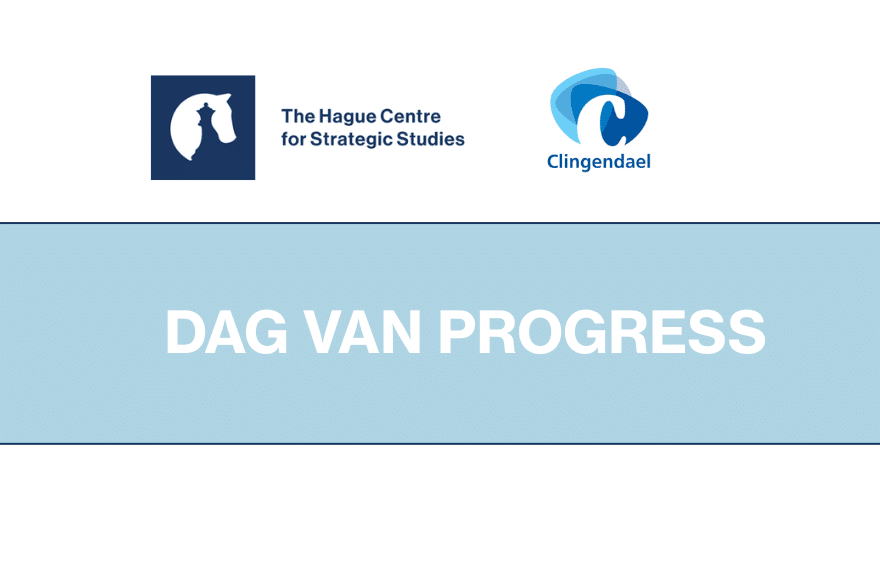 https://hcss.nl/wp-content/uploads/2025/11/Dag-van-Progress-2.png
572
880
Patrick Willemsen
https://hcss.nl/wp-content/uploads/2021/04/HCSS_Beeldmerk_Blauw_RGB1200-ppi-e1619025866259-300x300.png
Patrick Willemsen2025-11-17 11:00:002025-11-20 10:00:24HCSS & Clingendael ‘Dag van Progress’ 2025 | Europese Soevereiniteit en Kennis in Tijden van trans-Atlantische Spanning
https://hcss.nl/wp-content/uploads/2025/11/Dag-van-Progress-2.png
572
880
Patrick Willemsen
https://hcss.nl/wp-content/uploads/2021/04/HCSS_Beeldmerk_Blauw_RGB1200-ppi-e1619025866259-300x300.png
Patrick Willemsen2025-11-17 11:00:002025-11-20 10:00:24HCSS & Clingendael ‘Dag van Progress’ 2025 | Europese Soevereiniteit en Kennis in Tijden van trans-Atlantische Spanning https://hcss.nl/wp-content/uploads/2025/10/Ron-Stoop-evofenedex-column-.png
572
880
Britt de Cuijper
https://hcss.nl/wp-content/uploads/2021/04/HCSS_Beeldmerk_Blauw_RGB1200-ppi-e1619025866259-300x300.png
Britt de Cuijper2025-11-14 13:00:002025-11-12 14:35:35Column Globe Magazine | Amerikaanse tarieven raken Europese industrie hard
https://hcss.nl/wp-content/uploads/2025/10/Ron-Stoop-evofenedex-column-.png
572
880
Britt de Cuijper
https://hcss.nl/wp-content/uploads/2021/04/HCSS_Beeldmerk_Blauw_RGB1200-ppi-e1619025866259-300x300.png
Britt de Cuijper2025-11-14 13:00:002025-11-12 14:35:35Column Globe Magazine | Amerikaanse tarieven raken Europese industrie hard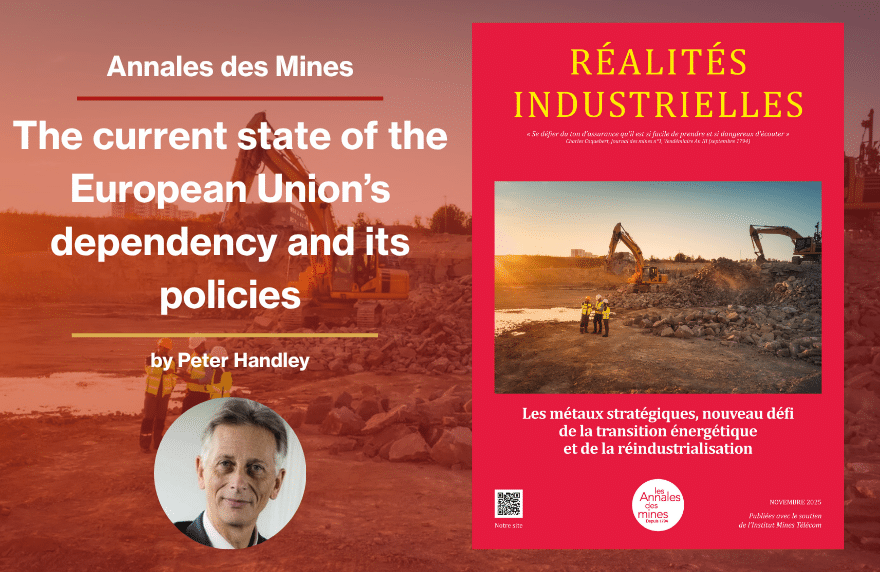 https://hcss.nl/wp-content/uploads/2025/11/Annales-des-Mines-The-current-state-of-the-EUs-dependency-and-its-policies-Peter-Handley-1.png
572
880
Patrick Willemsen
https://hcss.nl/wp-content/uploads/2021/04/HCSS_Beeldmerk_Blauw_RGB1200-ppi-e1619025866259-300x300.png
Patrick Willemsen2025-11-12 10:34:542025-11-12 10:34:56Annales des Mines | The current state of the European Union’s dependency and its policies
https://hcss.nl/wp-content/uploads/2025/11/Annales-des-Mines-The-current-state-of-the-EUs-dependency-and-its-policies-Peter-Handley-1.png
572
880
Patrick Willemsen
https://hcss.nl/wp-content/uploads/2021/04/HCSS_Beeldmerk_Blauw_RGB1200-ppi-e1619025866259-300x300.png
Patrick Willemsen2025-11-12 10:34:542025-11-12 10:34:56Annales des Mines | The current state of the European Union’s dependency and its policies https://hcss.nl/wp-content/uploads/2025/11/GCREAIM-Dick-Schoof.png
572
880
Britt de Cuijper
https://hcss.nl/wp-content/uploads/2021/04/HCSS_Beeldmerk_Blauw_RGB1200-ppi-e1619025866259-300x300.png
Britt de Cuijper2025-11-10 14:49:252025-11-12 11:33:45GC REAIM | Nederland zet militaire AI op VN-agenda in New York
https://hcss.nl/wp-content/uploads/2025/11/GCREAIM-Dick-Schoof.png
572
880
Britt de Cuijper
https://hcss.nl/wp-content/uploads/2021/04/HCSS_Beeldmerk_Blauw_RGB1200-ppi-e1619025866259-300x300.png
Britt de Cuijper2025-11-10 14:49:252025-11-12 11:33:45GC REAIM | Nederland zet militaire AI op VN-agenda in New York https://hcss.nl/wp-content/uploads/2025/10/Davis-Ellison-Atlantische-Commissie-1.png
572
880
Britt de Cuijper
https://hcss.nl/wp-content/uploads/2021/04/HCSS_Beeldmerk_Blauw_RGB1200-ppi-e1619025866259-300x300.png
Britt de Cuijper2025-11-06 10:42:462025-11-11 09:21:25Dr. Davis Ellison in Atlantisch Perspectief | Why the transatlantic ‘culture war’ sparks political violence
https://hcss.nl/wp-content/uploads/2025/10/Davis-Ellison-Atlantische-Commissie-1.png
572
880
Britt de Cuijper
https://hcss.nl/wp-content/uploads/2021/04/HCSS_Beeldmerk_Blauw_RGB1200-ppi-e1619025866259-300x300.png
Britt de Cuijper2025-11-06 10:42:462025-11-11 09:21:25Dr. Davis Ellison in Atlantisch Perspectief | Why the transatlantic ‘culture war’ sparks political violence https://hcss.nl/wp-content/uploads/2025/10/Grace-Wermenbol-1.png
572
880
Stephanie Govaerts
https://hcss.nl/wp-content/uploads/2021/04/HCSS_Beeldmerk_Blauw_RGB1200-ppi-e1619025866259-300x300.png
Stephanie Govaerts2025-11-03 09:30:002025-11-03 10:31:53Grace Wermenbol joins HCSS as Senior Fellow International Security and Geopolitics
https://hcss.nl/wp-content/uploads/2025/10/Grace-Wermenbol-1.png
572
880
Stephanie Govaerts
https://hcss.nl/wp-content/uploads/2021/04/HCSS_Beeldmerk_Blauw_RGB1200-ppi-e1619025866259-300x300.png
Stephanie Govaerts2025-11-03 09:30:002025-11-03 10:31:53Grace Wermenbol joins HCSS as Senior Fellow International Security and Geopolitics https://hcss.nl/wp-content/uploads/2025/10/Nieuwe-Oogst-Freek-Vossenaar-.png
572
880
Britt de Cuijper
https://hcss.nl/wp-content/uploads/2021/04/HCSS_Beeldmerk_Blauw_RGB1200-ppi-e1619025866259-300x300.png
Britt de Cuijper2025-10-31 14:41:042025-11-21 10:01:12Nieuwe Oogst: Tarieven en conflicten: hoe kwetsbaar is onze voedselproductie?
https://hcss.nl/wp-content/uploads/2025/10/Nieuwe-Oogst-Freek-Vossenaar-.png
572
880
Britt de Cuijper
https://hcss.nl/wp-content/uploads/2021/04/HCSS_Beeldmerk_Blauw_RGB1200-ppi-e1619025866259-300x300.png
Britt de Cuijper2025-10-31 14:41:042025-11-21 10:01:12Nieuwe Oogst: Tarieven en conflicten: hoe kwetsbaar is onze voedselproductie?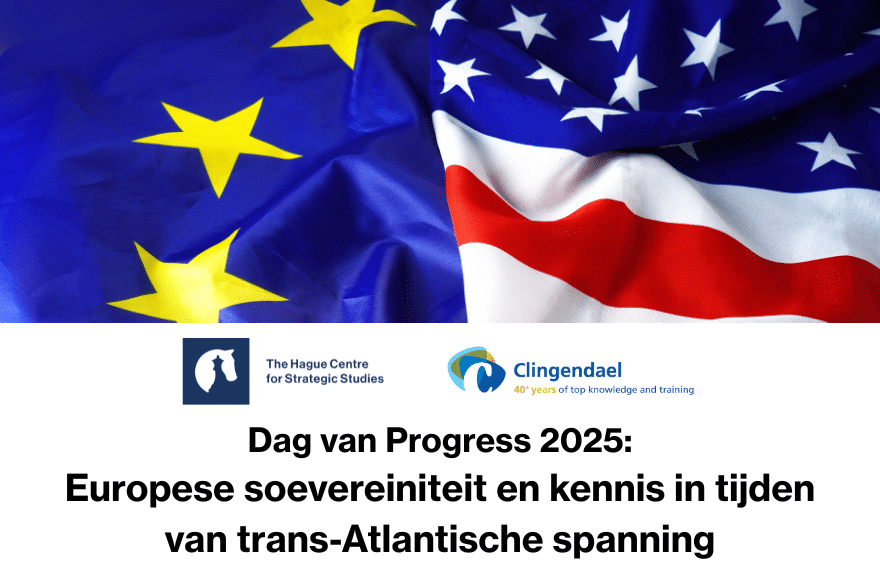 https://hcss.nl/wp-content/uploads/2025/10/Dag-van-Progress-2025.png
572
880
Patrick Willemsen
https://hcss.nl/wp-content/uploads/2021/04/HCSS_Beeldmerk_Blauw_RGB1200-ppi-e1619025866259-300x300.png
Patrick Willemsen2025-10-29 08:30:002025-11-10 14:35:53Dag van Progress 2025: Europese soevereiniteit en kennis in tijden van trans-Atlantische spanning
https://hcss.nl/wp-content/uploads/2025/10/Dag-van-Progress-2025.png
572
880
Patrick Willemsen
https://hcss.nl/wp-content/uploads/2021/04/HCSS_Beeldmerk_Blauw_RGB1200-ppi-e1619025866259-300x300.png
Patrick Willemsen2025-10-29 08:30:002025-11-10 14:35:53Dag van Progress 2025: Europese soevereiniteit en kennis in tijden van trans-Atlantische spanning https://hcss.nl/wp-content/uploads/2025/10/old-players-new-moves.png
572
880
Stephanie Govaerts
https://hcss.nl/wp-content/uploads/2021/04/HCSS_Beeldmerk_Blauw_RGB1200-ppi-e1619025866259-300x300.png
Stephanie Govaerts2025-10-14 12:54:172025-10-14 12:54:18New snapshot: India’s Strategy in the Shanghai Cooperation Organisation
https://hcss.nl/wp-content/uploads/2025/10/old-players-new-moves.png
572
880
Stephanie Govaerts
https://hcss.nl/wp-content/uploads/2021/04/HCSS_Beeldmerk_Blauw_RGB1200-ppi-e1619025866259-300x300.png
Stephanie Govaerts2025-10-14 12:54:172025-10-14 12:54:18New snapshot: India’s Strategy in the Shanghai Cooperation Organisation https://hcss.nl/wp-content/uploads/2025/10/NATO-Defense-College-Rome-Foresight-Conference-Looks-Tim-Sweijs.png
572
880
Patrick Willemsen
https://hcss.nl/wp-content/uploads/2021/04/HCSS_Beeldmerk_Blauw_RGB1200-ppi-e1619025866259-300x300.png
Patrick Willemsen2025-10-10 08:31:002025-10-13 13:24:14NATO’s Second Foresight Conference Looks Ahead to the Alliance’s Future
https://hcss.nl/wp-content/uploads/2025/10/NATO-Defense-College-Rome-Foresight-Conference-Looks-Tim-Sweijs.png
572
880
Patrick Willemsen
https://hcss.nl/wp-content/uploads/2021/04/HCSS_Beeldmerk_Blauw_RGB1200-ppi-e1619025866259-300x300.png
Patrick Willemsen2025-10-10 08:31:002025-10-13 13:24:14NATO’s Second Foresight Conference Looks Ahead to the Alliance’s Future https://hcss.nl/wp-content/uploads/2025/11/Arctic-security-conference-write-up.png
572
880
Stephanie Govaerts
https://hcss.nl/wp-content/uploads/2021/04/HCSS_Beeldmerk_Blauw_RGB1200-ppi-e1619025866259-300x300.png
Stephanie Govaerts2025-10-09 11:10:002025-11-24 11:32:54The Arctic Security Conference 2025: Managing Polarisation and Fragmentation
https://hcss.nl/wp-content/uploads/2025/11/Arctic-security-conference-write-up.png
572
880
Stephanie Govaerts
https://hcss.nl/wp-content/uploads/2021/04/HCSS_Beeldmerk_Blauw_RGB1200-ppi-e1619025866259-300x300.png
Stephanie Govaerts2025-10-09 11:10:002025-11-24 11:32:54The Arctic Security Conference 2025: Managing Polarisation and Fragmentation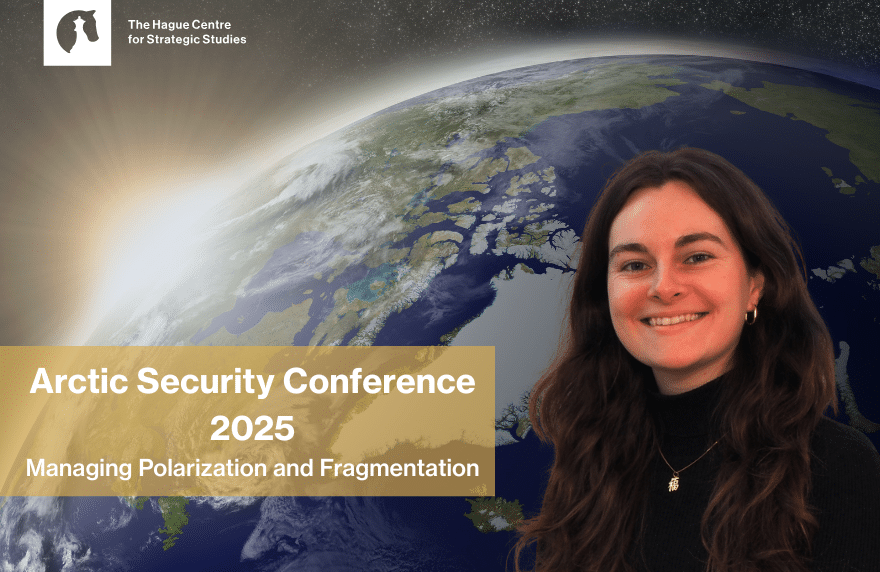 https://hcss.nl/wp-content/uploads/2025/10/Fiona-de-Cuyper-Arctic-security-conference-2025-.png
572
880
Britt de Cuijper
https://hcss.nl/wp-content/uploads/2021/04/HCSS_Beeldmerk_Blauw_RGB1200-ppi-e1619025866259-300x300.png
Britt de Cuijper2025-10-08 15:30:112025-10-09 08:19:09The Arctic Security Conference 2025 | Fiona De Cuyper
https://hcss.nl/wp-content/uploads/2025/10/Fiona-de-Cuyper-Arctic-security-conference-2025-.png
572
880
Britt de Cuijper
https://hcss.nl/wp-content/uploads/2021/04/HCSS_Beeldmerk_Blauw_RGB1200-ppi-e1619025866259-300x300.png
Britt de Cuijper2025-10-08 15:30:112025-10-09 08:19:09The Arctic Security Conference 2025 | Fiona De Cuyper https://hcss.nl/wp-content/uploads/2025/10/Ruben-Brekelmans-te-gast-bij-Boekestijn-en-de-Wijk-1.png
572
880
Britt de Cuijper
https://hcss.nl/wp-content/uploads/2021/04/HCSS_Beeldmerk_Blauw_RGB1200-ppi-e1619025866259-300x300.png
Britt de Cuijper2025-10-08 13:07:102025-11-11 09:24:17BNR | Ruben Brekelmans te gast bij Boekestijn en de Wijk
https://hcss.nl/wp-content/uploads/2025/10/Ruben-Brekelmans-te-gast-bij-Boekestijn-en-de-Wijk-1.png
572
880
Britt de Cuijper
https://hcss.nl/wp-content/uploads/2021/04/HCSS_Beeldmerk_Blauw_RGB1200-ppi-e1619025866259-300x300.png
Britt de Cuijper2025-10-08 13:07:102025-11-11 09:24:17BNR | Ruben Brekelmans te gast bij Boekestijn en de Wijk https://hcss.nl/wp-content/uploads/2025/10/frozen-battlegrounds.png
572
880
Stephanie Govaerts
https://hcss.nl/wp-content/uploads/2021/04/HCSS_Beeldmerk_Blauw_RGB1200-ppi-e1619025866259-300x300.png
Stephanie Govaerts2025-10-07 10:00:452025-10-07 15:28:41New snapshot: The Strategic Cost of Transatlantic Competition Over Greenland’s Critical Raw Materials
https://hcss.nl/wp-content/uploads/2025/10/frozen-battlegrounds.png
572
880
Stephanie Govaerts
https://hcss.nl/wp-content/uploads/2021/04/HCSS_Beeldmerk_Blauw_RGB1200-ppi-e1619025866259-300x300.png
Stephanie Govaerts2025-10-07 10:00:452025-10-07 15:28:41New snapshot: The Strategic Cost of Transatlantic Competition Over Greenland’s Critical Raw Materials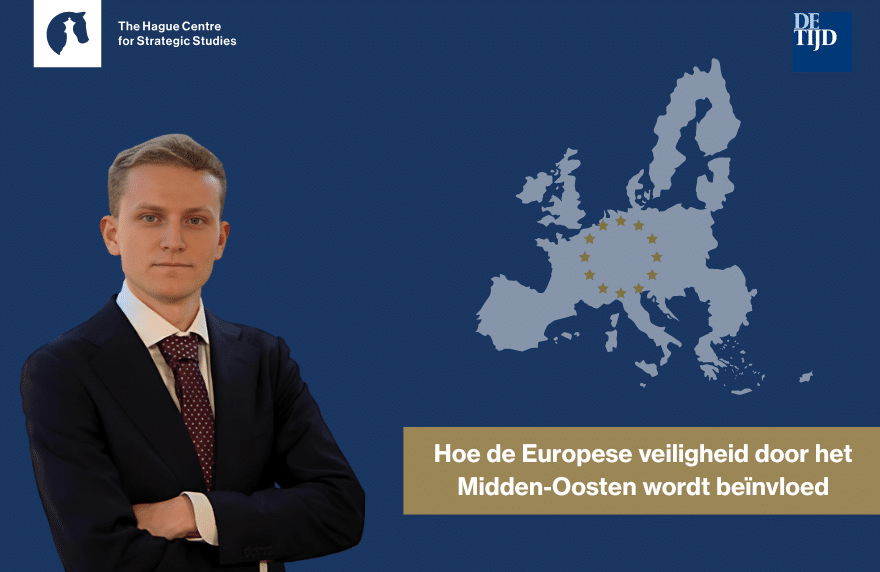 https://hcss.nl/wp-content/uploads/2025/10/Pieter-Jan-van-Doren-2.png
572
880
Britt de Cuijper
https://hcss.nl/wp-content/uploads/2021/04/HCSS_Beeldmerk_Blauw_RGB1200-ppi-e1619025866259-300x300.png
Britt de Cuijper2025-10-02 13:42:252025-10-02 13:42:26Opinie | Hoe de Europese veiligheid door het Midden-Oosten wordt beïnvloed
https://hcss.nl/wp-content/uploads/2025/10/Pieter-Jan-van-Doren-2.png
572
880
Britt de Cuijper
https://hcss.nl/wp-content/uploads/2021/04/HCSS_Beeldmerk_Blauw_RGB1200-ppi-e1619025866259-300x300.png
Britt de Cuijper2025-10-02 13:42:252025-10-02 13:42:26Opinie | Hoe de Europese veiligheid door het Midden-Oosten wordt beïnvloed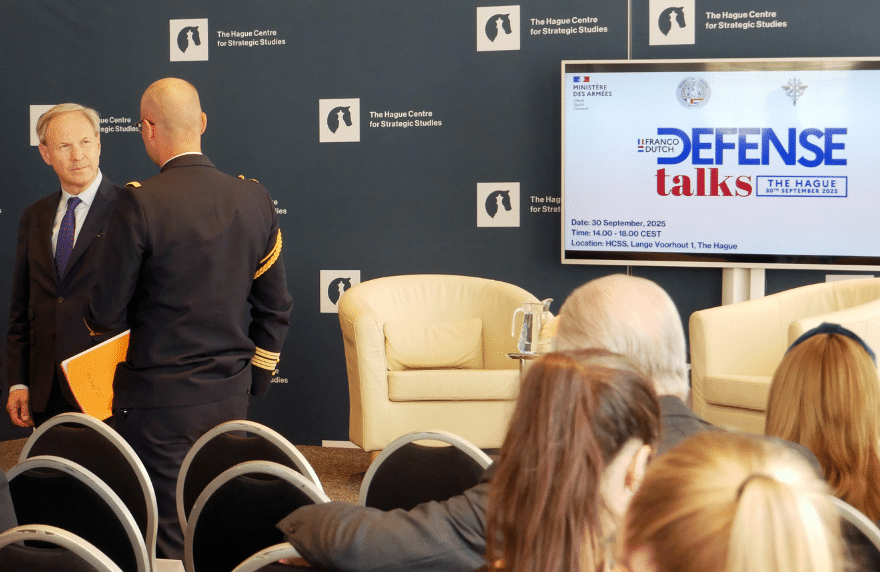 https://hcss.nl/wp-content/uploads/2025/11/franco-dutch.png
572
880
Stephanie Govaerts
https://hcss.nl/wp-content/uploads/2021/04/HCSS_Beeldmerk_Blauw_RGB1200-ppi-e1619025866259-300x300.png
Stephanie Govaerts2025-10-01 10:41:002025-11-07 14:41:57Event Recap Franco -Dutch Defence Talks
https://hcss.nl/wp-content/uploads/2025/11/franco-dutch.png
572
880
Stephanie Govaerts
https://hcss.nl/wp-content/uploads/2021/04/HCSS_Beeldmerk_Blauw_RGB1200-ppi-e1619025866259-300x300.png
Stephanie Govaerts2025-10-01 10:41:002025-11-07 14:41:57Event Recap Franco -Dutch Defence Talks https://hcss.nl/wp-content/uploads/2025/09/Markus-Iven-joins-HCSS-as-Strategic-Analyst-1.png
572
880
Patrick Willemsen
https://hcss.nl/wp-content/uploads/2021/04/HCSS_Beeldmerk_Blauw_RGB1200-ppi-e1619025866259-300x300.png
Patrick Willemsen2025-09-29 08:30:002025-09-29 10:44:09Markus Iven joins HCSS as new Strategic Analyst!
https://hcss.nl/wp-content/uploads/2025/09/Markus-Iven-joins-HCSS-as-Strategic-Analyst-1.png
572
880
Patrick Willemsen
https://hcss.nl/wp-content/uploads/2021/04/HCSS_Beeldmerk_Blauw_RGB1200-ppi-e1619025866259-300x300.png
Patrick Willemsen2025-09-29 08:30:002025-09-29 10:44:09Markus Iven joins HCSS as new Strategic Analyst! https://hcss.nl/wp-content/uploads/2025/09/Peter-Wijninga-Forum-Groningen-1-1.png
572
880
Britt de Cuijper
https://hcss.nl/wp-content/uploads/2021/04/HCSS_Beeldmerk_Blauw_RGB1200-ppi-e1619025866259-300x300.png
Britt de Cuijper2025-09-26 14:07:182025-11-11 09:24:35Forum Groningen | Toekomst van Europa: veiligheid in turbulente tijden
https://hcss.nl/wp-content/uploads/2025/09/Peter-Wijninga-Forum-Groningen-1-1.png
572
880
Britt de Cuijper
https://hcss.nl/wp-content/uploads/2021/04/HCSS_Beeldmerk_Blauw_RGB1200-ppi-e1619025866259-300x300.png
Britt de Cuijper2025-09-26 14:07:182025-11-11 09:24:35Forum Groningen | Toekomst van Europa: veiligheid in turbulente tijden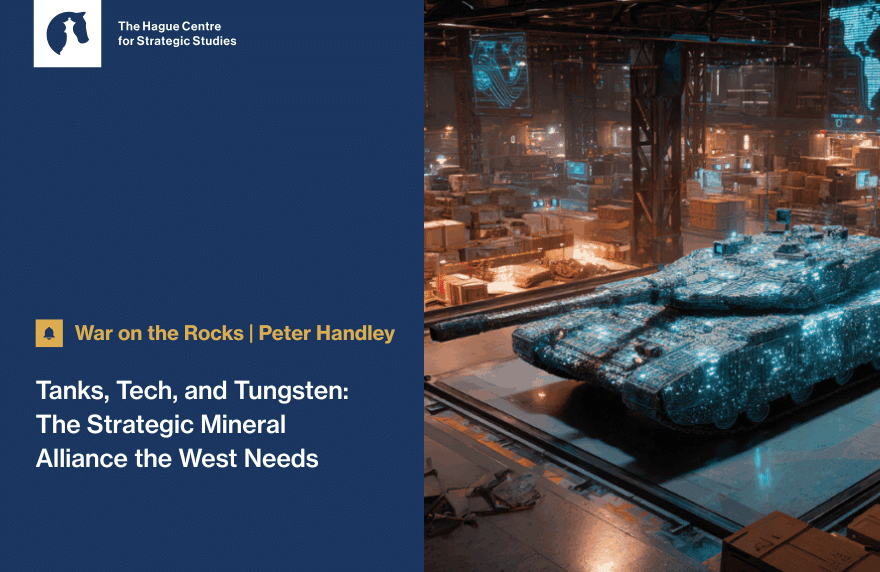 https://hcss.nl/wp-content/uploads/2025/09/peter-handley-.png
572
880
Stephanie Govaerts
https://hcss.nl/wp-content/uploads/2021/04/HCSS_Beeldmerk_Blauw_RGB1200-ppi-e1619025866259-300x300.png
Stephanie Govaerts2025-09-22 10:57:122025-09-25 11:50:37Tanks, Tech, and Tungsten: The Strategic Mineral Alliance the West Needs | Peter Handley
https://hcss.nl/wp-content/uploads/2025/09/peter-handley-.png
572
880
Stephanie Govaerts
https://hcss.nl/wp-content/uploads/2021/04/HCSS_Beeldmerk_Blauw_RGB1200-ppi-e1619025866259-300x300.png
Stephanie Govaerts2025-09-22 10:57:122025-09-25 11:50:37Tanks, Tech, and Tungsten: The Strategic Mineral Alliance the West Needs | Peter Handley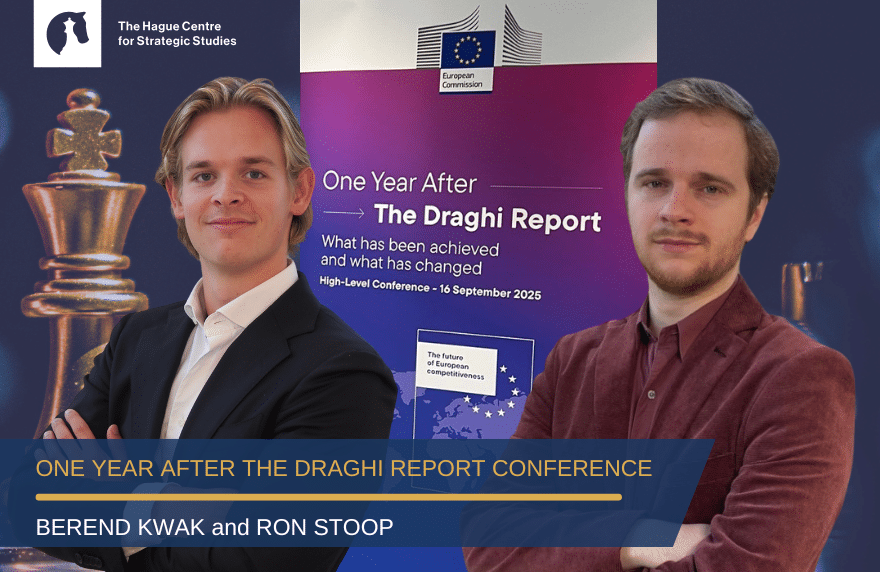 https://hcss.nl/wp-content/uploads/2025/09/draghi-conference-1.png
572
880
Stephanie Govaerts
https://hcss.nl/wp-content/uploads/2021/04/HCSS_Beeldmerk_Blauw_RGB1200-ppi-e1619025866259-300x300.png
Stephanie Govaerts2025-09-17 12:11:562025-09-17 12:12:54One year after the Draghi Report Conference | Berend Kwak & Ron Stoop
https://hcss.nl/wp-content/uploads/2025/09/draghi-conference-1.png
572
880
Stephanie Govaerts
https://hcss.nl/wp-content/uploads/2021/04/HCSS_Beeldmerk_Blauw_RGB1200-ppi-e1619025866259-300x300.png
Stephanie Govaerts2025-09-17 12:11:562025-09-17 12:12:54One year after the Draghi Report Conference | Berend Kwak & Ron Stoop https://hcss.nl/wp-content/uploads/2025/09/BNR-sofia-.png
572
880
Britt de Cuijper
https://hcss.nl/wp-content/uploads/2021/04/HCSS_Beeldmerk_Blauw_RGB1200-ppi-e1619025866259-300x300.png
Britt de Cuijper2025-09-17 11:05:402025-09-26 14:27:18BNR | Sofia Romansky: Snelle toename AI in militaire toepassingen leidt tot zorgen
https://hcss.nl/wp-content/uploads/2025/09/BNR-sofia-.png
572
880
Britt de Cuijper
https://hcss.nl/wp-content/uploads/2021/04/HCSS_Beeldmerk_Blauw_RGB1200-ppi-e1619025866259-300x300.png
Britt de Cuijper2025-09-17 11:05:402025-09-26 14:27:18BNR | Sofia Romansky: Snelle toename AI in militaire toepassingen leidt tot zorgen  https://hcss.nl/wp-content/uploads/2025/07/Asia-Times-Hans-Horan.png
572
880
Britt de Cuijper
https://hcss.nl/wp-content/uploads/2021/04/HCSS_Beeldmerk_Blauw_RGB1200-ppi-e1619025866259-300x300.png
Britt de Cuijper2025-08-14 13:24:022025-09-25 11:51:07Asia Times | Hans Horan: Xi’s charm offensive cuts both ways in the Global South
https://hcss.nl/wp-content/uploads/2025/07/Asia-Times-Hans-Horan.png
572
880
Britt de Cuijper
https://hcss.nl/wp-content/uploads/2021/04/HCSS_Beeldmerk_Blauw_RGB1200-ppi-e1619025866259-300x300.png
Britt de Cuijper2025-08-14 13:24:022025-09-25 11:51:07Asia Times | Hans Horan: Xi’s charm offensive cuts both ways in the Global South https://hcss.nl/wp-content/uploads/2025/07/NATO-recaps-3.png
572
880
Stephanie Govaerts
https://hcss.nl/wp-content/uploads/2021/04/HCSS_Beeldmerk_Blauw_RGB1200-ppi-e1619025866259-300x300.png
Stephanie Govaerts2025-07-25 16:00:122025-08-05 09:37:35HCSS at the NATO Public Forum 2025: A behind-the-scenes look at what we brought to the table
https://hcss.nl/wp-content/uploads/2025/07/NATO-recaps-3.png
572
880
Stephanie Govaerts
https://hcss.nl/wp-content/uploads/2021/04/HCSS_Beeldmerk_Blauw_RGB1200-ppi-e1619025866259-300x300.png
Stephanie Govaerts2025-07-25 16:00:122025-08-05 09:37:35HCSS at the NATO Public Forum 2025: A behind-the-scenes look at what we brought to the table https://hcss.nl/wp-content/uploads/2025/07/BNR-Strateeg-Fiona-De-Cuyper-Noordpool-Arctic.png
572
880
Britt de Cuijper
https://hcss.nl/wp-content/uploads/2021/04/HCSS_Beeldmerk_Blauw_RGB1200-ppi-e1619025866259-300x300.png
Britt de Cuijper2025-07-24 16:26:082025-07-28 10:55:33BNR | De Strateeg: De strijd om het Noordpoolgebied, ‘het wordt één van de nieuwe machtscentra van de wereld ’
https://hcss.nl/wp-content/uploads/2025/07/BNR-Strateeg-Fiona-De-Cuyper-Noordpool-Arctic.png
572
880
Britt de Cuijper
https://hcss.nl/wp-content/uploads/2021/04/HCSS_Beeldmerk_Blauw_RGB1200-ppi-e1619025866259-300x300.png
Britt de Cuijper2025-07-24 16:26:082025-07-28 10:55:33BNR | De Strateeg: De strijd om het Noordpoolgebied, ‘het wordt één van de nieuwe machtscentra van de wereld ’ https://hcss.nl/wp-content/uploads/2025/07/NATO-recaps-2.png
572
880
Stephanie Govaerts
https://hcss.nl/wp-content/uploads/2021/04/HCSS_Beeldmerk_Blauw_RGB1200-ppi-e1619025866259-300x300.png
Stephanie Govaerts2025-07-24 10:00:542025-09-15 11:17:39Irina Patrahau | Five Key Decisions to Revitalize US Critical Mineral Stockpiles
https://hcss.nl/wp-content/uploads/2025/07/NATO-recaps-2.png
572
880
Stephanie Govaerts
https://hcss.nl/wp-content/uploads/2021/04/HCSS_Beeldmerk_Blauw_RGB1200-ppi-e1619025866259-300x300.png
Stephanie Govaerts2025-07-24 10:00:542025-09-15 11:17:39Irina Patrahau | Five Key Decisions to Revitalize US Critical Mineral Stockpiles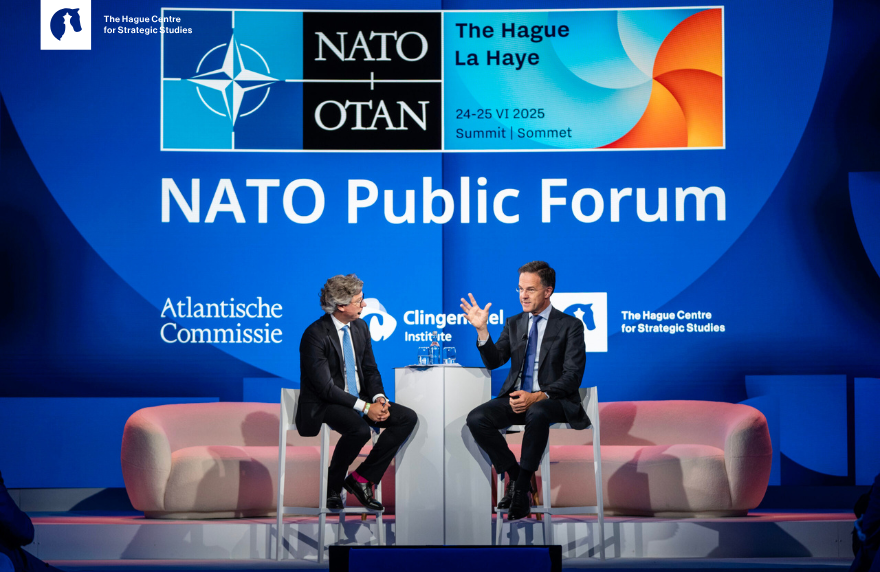 https://hcss.nl/wp-content/uploads/2025/07/NATO-recaps.png
572
880
Patrick Willemsen
https://hcss.nl/wp-content/uploads/2021/04/HCSS_Beeldmerk_Blauw_RGB1200-ppi-e1619025866259-300x300.png
Patrick Willemsen2025-07-23 15:30:482025-07-29 13:46:40HCSS at the 2025 NATO Public Forum: A Historic Moment for the Netherlands – and for European Security?
https://hcss.nl/wp-content/uploads/2025/07/NATO-recaps.png
572
880
Patrick Willemsen
https://hcss.nl/wp-content/uploads/2021/04/HCSS_Beeldmerk_Blauw_RGB1200-ppi-e1619025866259-300x300.png
Patrick Willemsen2025-07-23 15:30:482025-07-29 13:46:40HCSS at the 2025 NATO Public Forum: A Historic Moment for the Netherlands – and for European Security? https://hcss.nl/wp-content/uploads/2025/07/de-strateeg-13-juli-1.png
572
880
Britt de Cuijper
https://hcss.nl/wp-content/uploads/2021/04/HCSS_Beeldmerk_Blauw_RGB1200-ppi-e1619025866259-300x300.png
Britt de Cuijper2025-07-21 12:20:572025-09-25 11:51:48Strategische vragen | De Strateeg: Wat als er oorlog uitbreekt rond de Noordpool?
https://hcss.nl/wp-content/uploads/2025/07/de-strateeg-13-juli-1.png
572
880
Britt de Cuijper
https://hcss.nl/wp-content/uploads/2021/04/HCSS_Beeldmerk_Blauw_RGB1200-ppi-e1619025866259-300x300.png
Britt de Cuijper2025-07-21 12:20:572025-09-25 11:51:48Strategische vragen | De Strateeg: Wat als er oorlog uitbreekt rond de Noordpool? https://hcss.nl/wp-content/uploads/2025/07/de-strateeg-13-juli.png
572
880
Britt de Cuijper
https://hcss.nl/wp-content/uploads/2021/04/HCSS_Beeldmerk_Blauw_RGB1200-ppi-e1619025866259-300x300.png
Britt de Cuijper2025-07-14 13:28:402025-09-25 11:51:57De Strateeg: De grote strijd om het Noordpoolgebied
https://hcss.nl/wp-content/uploads/2025/07/de-strateeg-13-juli.png
572
880
Britt de Cuijper
https://hcss.nl/wp-content/uploads/2021/04/HCSS_Beeldmerk_Blauw_RGB1200-ppi-e1619025866259-300x300.png
Britt de Cuijper2025-07-14 13:28:402025-09-25 11:51:57De Strateeg: De grote strijd om het Noordpoolgebied https://hcss.nl/wp-content/uploads/2025/07/Rob-de-Wijk-Nederland-240.png
572
880
Britt de Cuijper
https://hcss.nl/wp-content/uploads/2021/04/HCSS_Beeldmerk_Blauw_RGB1200-ppi-e1619025866259-300x300.png
Britt de Cuijper2025-07-11 12:34:232025-07-11 12:34:24Denktank Nederland 2040 interview | Rob de Wijk: ‘Ik vraag me nooit af hoe Nederland er in 2040 uitziet’
https://hcss.nl/wp-content/uploads/2025/07/Rob-de-Wijk-Nederland-240.png
572
880
Britt de Cuijper
https://hcss.nl/wp-content/uploads/2021/04/HCSS_Beeldmerk_Blauw_RGB1200-ppi-e1619025866259-300x300.png
Britt de Cuijper2025-07-11 12:34:232025-07-11 12:34:24Denktank Nederland 2040 interview | Rob de Wijk: ‘Ik vraag me nooit af hoe Nederland er in 2040 uitziet’ https://hcss.nl/wp-content/uploads/2025/07/Amrish-Ritoe-BNR-ochtendspits-grondstoffen-amerika-trump-afrika-1.png
572
880
Patrick Willemsen
https://hcss.nl/wp-content/uploads/2021/04/HCSS_Beeldmerk_Blauw_RGB1200-ppi-e1619025866259-300x300.png
Patrick Willemsen2025-07-10 09:33:252025-07-15 14:52:53BNR | Amrish Ritoe: “Voor Trump zijn Afrikaanse grondstoffen topprioriteit”
https://hcss.nl/wp-content/uploads/2025/07/Amrish-Ritoe-BNR-ochtendspits-grondstoffen-amerika-trump-afrika-1.png
572
880
Patrick Willemsen
https://hcss.nl/wp-content/uploads/2021/04/HCSS_Beeldmerk_Blauw_RGB1200-ppi-e1619025866259-300x300.png
Patrick Willemsen2025-07-10 09:33:252025-07-15 14:52:53BNR | Amrish Ritoe: “Voor Trump zijn Afrikaanse grondstoffen topprioriteit” https://hcss.nl/wp-content/uploads/2025/04/De-Strateeg-sweijs-martijn-kitzen-1-1.png
572
880
Patrick Willemsen
https://hcss.nl/wp-content/uploads/2021/04/HCSS_Beeldmerk_Blauw_RGB1200-ppi-e1619025866259-300x300.png
Patrick Willemsen2025-07-07 09:21:242025-08-05 09:41:59De Strateeg: Is er echt consensus binnen de NAVO over wie dat gaat doen?
https://hcss.nl/wp-content/uploads/2025/04/De-Strateeg-sweijs-martijn-kitzen-1-1.png
572
880
Patrick Willemsen
https://hcss.nl/wp-content/uploads/2021/04/HCSS_Beeldmerk_Blauw_RGB1200-ppi-e1619025866259-300x300.png
Patrick Willemsen2025-07-07 09:21:242025-08-05 09:41:59De Strateeg: Is er echt consensus binnen de NAVO over wie dat gaat doen? https://hcss.nl/wp-content/uploads/2025/04/De-Strateeg-sweijs-martijn-kitzen-1-1.png
572
880
Patrick Willemsen
https://hcss.nl/wp-content/uploads/2021/04/HCSS_Beeldmerk_Blauw_RGB1200-ppi-e1619025866259-300x300.png
Patrick Willemsen2025-06-30 08:54:432025-08-05 09:41:39De Strateeg: Vijf procent, en hoe nu verder?
https://hcss.nl/wp-content/uploads/2025/04/De-Strateeg-sweijs-martijn-kitzen-1-1.png
572
880
Patrick Willemsen
https://hcss.nl/wp-content/uploads/2021/04/HCSS_Beeldmerk_Blauw_RGB1200-ppi-e1619025866259-300x300.png
Patrick Willemsen2025-06-30 08:54:432025-08-05 09:41:39De Strateeg: Vijf procent, en hoe nu verder?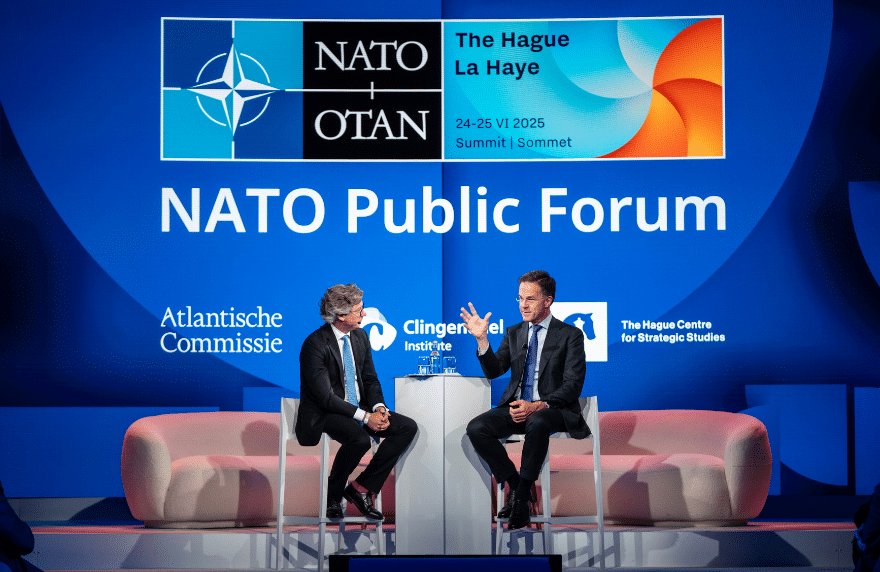 https://hcss.nl/wp-content/uploads/2025/06/Rutte-NAVO-NATO-Public-Forum.png
572
880
Patrick Willemsen
https://hcss.nl/wp-content/uploads/2021/04/HCSS_Beeldmerk_Blauw_RGB1200-ppi-e1619025866259-300x300.png
Patrick Willemsen2025-06-26 11:00:002025-06-26 11:37:31VRT NWS | Tim Sweijs blikt terug op NAVO-Top: “Rutte houdt de boel bij elkaar”
https://hcss.nl/wp-content/uploads/2025/06/Rutte-NAVO-NATO-Public-Forum.png
572
880
Patrick Willemsen
https://hcss.nl/wp-content/uploads/2021/04/HCSS_Beeldmerk_Blauw_RGB1200-ppi-e1619025866259-300x300.png
Patrick Willemsen2025-06-26 11:00:002025-06-26 11:37:31VRT NWS | Tim Sweijs blikt terug op NAVO-Top: “Rutte houdt de boel bij elkaar” https://hcss.nl/wp-content/uploads/2025/06/energiepodium-rob-de-wijk-column.png
572
880
Patrick Willemsen
https://hcss.nl/wp-content/uploads/2021/04/HCSS_Beeldmerk_Blauw_RGB1200-ppi-e1619025866259-300x300.png
Patrick Willemsen2025-06-25 10:00:002025-06-11 10:05:42Column Energiepodium: Nord Stream 2 terug?
https://hcss.nl/wp-content/uploads/2025/06/energiepodium-rob-de-wijk-column.png
572
880
Patrick Willemsen
https://hcss.nl/wp-content/uploads/2021/04/HCSS_Beeldmerk_Blauw_RGB1200-ppi-e1619025866259-300x300.png
Patrick Willemsen2025-06-25 10:00:002025-06-11 10:05:42Column Energiepodium: Nord Stream 2 terug?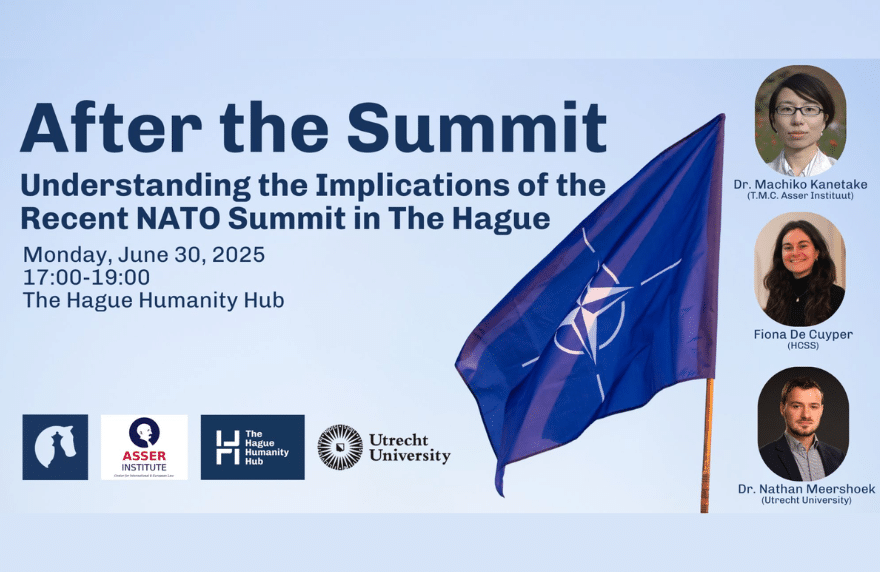 https://hcss.nl/wp-content/uploads/2025/06/After-The-Summit-Fiona-de-Cuyper-event.png
572
880
Patrick Willemsen
https://hcss.nl/wp-content/uploads/2021/04/HCSS_Beeldmerk_Blauw_RGB1200-ppi-e1619025866259-300x300.png
Patrick Willemsen2025-06-19 11:26:472025-07-04 10:12:48Expert panel | After The Summit: Understanding the Implications of the Recent NATO Summit in The Hague
https://hcss.nl/wp-content/uploads/2025/06/After-The-Summit-Fiona-de-Cuyper-event.png
572
880
Patrick Willemsen
https://hcss.nl/wp-content/uploads/2021/04/HCSS_Beeldmerk_Blauw_RGB1200-ppi-e1619025866259-300x300.png
Patrick Willemsen2025-06-19 11:26:472025-07-04 10:12:48Expert panel | After The Summit: Understanding the Implications of the Recent NATO Summit in The Hague https://hcss.nl/wp-content/uploads/2025/05/tim-sweijs-wnl-stand-van-nederland-ruimte-space-star-wars.png
572
880
Patrick Willemsen
https://hcss.nl/wp-content/uploads/2021/04/HCSS_Beeldmerk_Blauw_RGB1200-ppi-e1619025866259-300x300.png
Patrick Willemsen2025-05-19 15:29:172025-05-19 15:29:38WNL Podcast met Tim Sweijs | Is Nederland klaar voor de strijd in de ruimte?
https://hcss.nl/wp-content/uploads/2025/05/tim-sweijs-wnl-stand-van-nederland-ruimte-space-star-wars.png
572
880
Patrick Willemsen
https://hcss.nl/wp-content/uploads/2021/04/HCSS_Beeldmerk_Blauw_RGB1200-ppi-e1619025866259-300x300.png
Patrick Willemsen2025-05-19 15:29:172025-05-19 15:29:38WNL Podcast met Tim Sweijs | Is Nederland klaar voor de strijd in de ruimte? https://hcss.nl/wp-content/uploads/2025/04/energiepodium-rob-de-wijk-column.png
572
880
Patrick Willemsen
https://hcss.nl/wp-content/uploads/2021/04/HCSS_Beeldmerk_Blauw_RGB1200-ppi-e1619025866259-300x300.png
Patrick Willemsen2025-04-23 13:00:002025-04-09 14:24:30Column Energiepodium: Van Poetin verlost, maar Trump op de stoep
https://hcss.nl/wp-content/uploads/2025/04/energiepodium-rob-de-wijk-column.png
572
880
Patrick Willemsen
https://hcss.nl/wp-content/uploads/2021/04/HCSS_Beeldmerk_Blauw_RGB1200-ppi-e1619025866259-300x300.png
Patrick Willemsen2025-04-23 13:00:002025-04-09 14:24:30Column Energiepodium: Van Poetin verlost, maar Trump op de stoep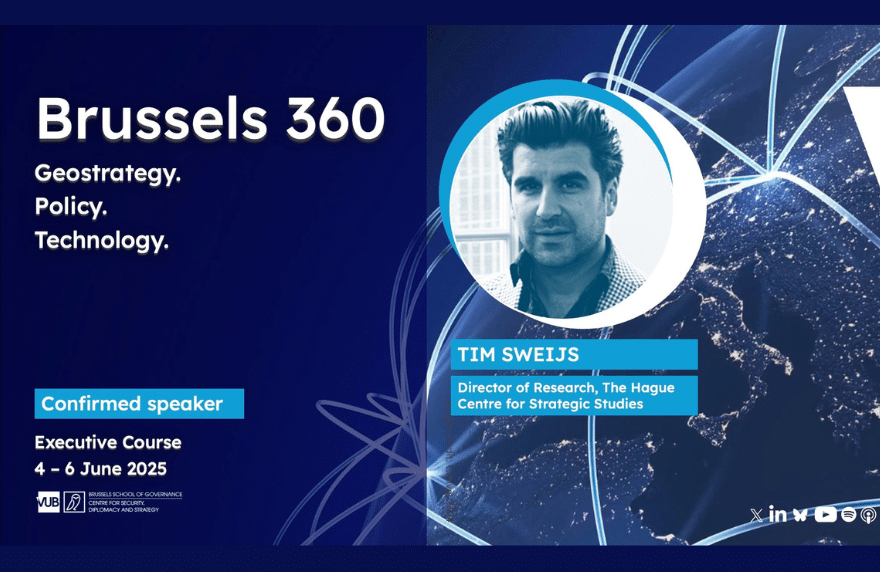 https://hcss.nl/wp-content/uploads/2025/04/Tim-Sweijs-Brussels-360-CSDS.png
572
880
Patrick Willemsen
https://hcss.nl/wp-content/uploads/2021/04/HCSS_Beeldmerk_Blauw_RGB1200-ppi-e1619025866259-300x300.png
Patrick Willemsen2025-04-17 14:15:222025-09-26 14:29:34Tim Sweijs lectures on strategy and transatlantic security at the “Brussels 360” Executive Course
https://hcss.nl/wp-content/uploads/2025/04/Tim-Sweijs-Brussels-360-CSDS.png
572
880
Patrick Willemsen
https://hcss.nl/wp-content/uploads/2021/04/HCSS_Beeldmerk_Blauw_RGB1200-ppi-e1619025866259-300x300.png
Patrick Willemsen2025-04-17 14:15:222025-09-26 14:29:34Tim Sweijs lectures on strategy and transatlantic security at the “Brussels 360” Executive Course https://hcss.nl/wp-content/uploads/2025/04/De-Strateeg-Tom-Middendorp-defensie-industrie-europa-1.png
572
880
Patrick Willemsen
https://hcss.nl/wp-content/uploads/2021/04/HCSS_Beeldmerk_Blauw_RGB1200-ppi-e1619025866259-300x300.png
Patrick Willemsen2025-04-16 10:49:292025-08-05 09:50:24Strategische Vragen | De Strateeg: Gaan defensie-investeringen ten koste van klimaatbeleid?
https://hcss.nl/wp-content/uploads/2025/04/De-Strateeg-Tom-Middendorp-defensie-industrie-europa-1.png
572
880
Patrick Willemsen
https://hcss.nl/wp-content/uploads/2021/04/HCSS_Beeldmerk_Blauw_RGB1200-ppi-e1619025866259-300x300.png
Patrick Willemsen2025-04-16 10:49:292025-08-05 09:50:24Strategische Vragen | De Strateeg: Gaan defensie-investeringen ten koste van klimaatbeleid? https://hcss.nl/wp-content/uploads/2025/04/De-Strateeg-Tom-Middendorp-defensie-industrie-europa-1.png
572
880
Patrick Willemsen
https://hcss.nl/wp-content/uploads/2021/04/HCSS_Beeldmerk_Blauw_RGB1200-ppi-e1619025866259-300x300.png
Patrick Willemsen2025-04-13 12:09:202025-08-05 09:36:20De Strateeg: De geheime sleutel tot goede defensiesamenwerking in Europa
https://hcss.nl/wp-content/uploads/2025/04/De-Strateeg-Tom-Middendorp-defensie-industrie-europa-1.png
572
880
Patrick Willemsen
https://hcss.nl/wp-content/uploads/2021/04/HCSS_Beeldmerk_Blauw_RGB1200-ppi-e1619025866259-300x300.png
Patrick Willemsen2025-04-13 12:09:202025-08-05 09:36:20De Strateeg: De geheime sleutel tot goede defensiesamenwerking in Europa https://hcss.nl/wp-content/uploads/2025/04/boekestijn-en-sweijs-BNR.png
572
880
Patrick Willemsen
https://hcss.nl/wp-content/uploads/2021/04/HCSS_Beeldmerk_Blauw_RGB1200-ppi-e1619025866259-300x300.png
Patrick Willemsen2025-04-10 11:20:332025-04-11 11:21:31BNR podcast | Boekestijn & Sweijs: Trump tegen de rest van de wereld
https://hcss.nl/wp-content/uploads/2025/04/boekestijn-en-sweijs-BNR.png
572
880
Patrick Willemsen
https://hcss.nl/wp-content/uploads/2021/04/HCSS_Beeldmerk_Blauw_RGB1200-ppi-e1619025866259-300x300.png
Patrick Willemsen2025-04-10 11:20:332025-04-11 11:21:31BNR podcast | Boekestijn & Sweijs: Trump tegen de rest van de wereld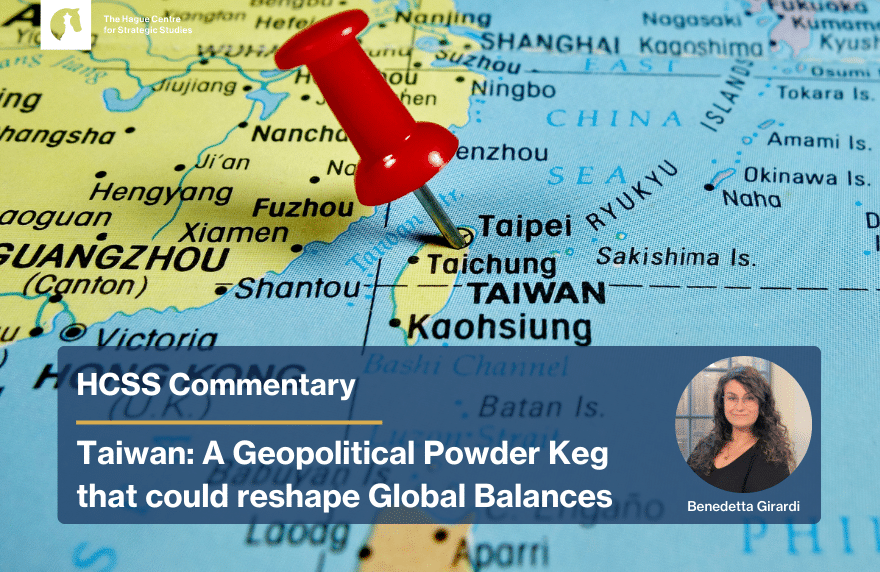 https://hcss.nl/wp-content/uploads/2025/04/Op-ed-Taiwan-a-geopolitical-powder-keg-that-could-reshape-global-balances.png
572
880
Patrick Willemsen
https://hcss.nl/wp-content/uploads/2021/04/HCSS_Beeldmerk_Blauw_RGB1200-ppi-e1619025866259-300x300.png
Patrick Willemsen2025-04-10 09:55:002025-04-03 14:04:42HCSS Commentary | Taiwan: A Geopolitical Powder Keg that could reshape Global Balances
https://hcss.nl/wp-content/uploads/2025/04/Op-ed-Taiwan-a-geopolitical-powder-keg-that-could-reshape-global-balances.png
572
880
Patrick Willemsen
https://hcss.nl/wp-content/uploads/2021/04/HCSS_Beeldmerk_Blauw_RGB1200-ppi-e1619025866259-300x300.png
Patrick Willemsen2025-04-10 09:55:002025-04-03 14:04:42HCSS Commentary | Taiwan: A Geopolitical Powder Keg that could reshape Global Balances https://hcss.nl/wp-content/uploads/2025/04/De-Strateeg-sweijs-van-soest.png
572
880
Patrick Willemsen
https://hcss.nl/wp-content/uploads/2021/04/HCSS_Beeldmerk_Blauw_RGB1200-ppi-e1619025866259-300x300.png
Patrick Willemsen2025-04-09 11:17:282025-08-05 09:36:06Strategische Vragen | De Strateeg: Hoe kan Europa tactisch terugslaan naar Amerika?
https://hcss.nl/wp-content/uploads/2025/04/De-Strateeg-sweijs-van-soest.png
572
880
Patrick Willemsen
https://hcss.nl/wp-content/uploads/2021/04/HCSS_Beeldmerk_Blauw_RGB1200-ppi-e1619025866259-300x300.png
Patrick Willemsen2025-04-09 11:17:282025-08-05 09:36:06Strategische Vragen | De Strateeg: Hoe kan Europa tactisch terugslaan naar Amerika? https://hcss.nl/wp-content/uploads/2025/04/boekestijn-en-sweijs-BNR.png
572
880
Patrick Willemsen
https://hcss.nl/wp-content/uploads/2021/04/HCSS_Beeldmerk_Blauw_RGB1200-ppi-e1619025866259-300x300.png
Patrick Willemsen2025-04-08 09:21:112025-09-26 14:29:44Boekestijn & Sweijs: Escalatie tussen VS en China
https://hcss.nl/wp-content/uploads/2025/04/boekestijn-en-sweijs-BNR.png
572
880
Patrick Willemsen
https://hcss.nl/wp-content/uploads/2021/04/HCSS_Beeldmerk_Blauw_RGB1200-ppi-e1619025866259-300x300.png
Patrick Willemsen2025-04-08 09:21:112025-09-26 14:29:44Boekestijn & Sweijs: Escalatie tussen VS en China https://hcss.nl/wp-content/uploads/2025/04/De-Strateeg-sweijs-van-soest.png
572
880
Patrick Willemsen
https://hcss.nl/wp-content/uploads/2021/04/HCSS_Beeldmerk_Blauw_RGB1200-ppi-e1619025866259-300x300.png
Patrick Willemsen2025-04-07 09:00:002025-09-26 14:30:25De Strateeg: Bestaat de NAVO nog na de top in Den Haag deze zomer?
https://hcss.nl/wp-content/uploads/2025/04/De-Strateeg-sweijs-van-soest.png
572
880
Patrick Willemsen
https://hcss.nl/wp-content/uploads/2021/04/HCSS_Beeldmerk_Blauw_RGB1200-ppi-e1619025866259-300x300.png
Patrick Willemsen2025-04-07 09:00:002025-09-26 14:30:25De Strateeg: Bestaat de NAVO nog na de top in Den Haag deze zomer? https://hcss.nl/wp-content/uploads/2025/04/op-ed-Benedetta-Girardi-Analisa-Difesa-article-Taiwan.png
572
880
Patrick Willemsen
https://hcss.nl/wp-content/uploads/2021/04/HCSS_Beeldmerk_Blauw_RGB1200-ppi-e1619025866259-300x300.png
Patrick Willemsen2025-04-03 13:58:072025-04-04 12:15:57Analisi Difesa | Taiwan: Una Polveriera che potrebbe rimodellare gli Equilibri Globali
https://hcss.nl/wp-content/uploads/2025/04/op-ed-Benedetta-Girardi-Analisa-Difesa-article-Taiwan.png
572
880
Patrick Willemsen
https://hcss.nl/wp-content/uploads/2021/04/HCSS_Beeldmerk_Blauw_RGB1200-ppi-e1619025866259-300x300.png
Patrick Willemsen2025-04-03 13:58:072025-04-04 12:15:57Analisi Difesa | Taiwan: Una Polveriera che potrebbe rimodellare gli Equilibri Globali https://hcss.nl/wp-content/uploads/2025/03/From-the-Euronuke-to-a-Nuclear-Weapon-Free-Zone-1.png
572
880
Patrick Willemsen
https://hcss.nl/wp-content/uploads/2021/04/HCSS_Beeldmerk_Blauw_RGB1200-ppi-e1619025866259-300x300.png
Patrick Willemsen2025-03-27 15:24:122025-09-26 14:30:48New report: From the Euronuke to a Nuclear Weapon Free Zone
https://hcss.nl/wp-content/uploads/2025/03/From-the-Euronuke-to-a-Nuclear-Weapon-Free-Zone-1.png
572
880
Patrick Willemsen
https://hcss.nl/wp-content/uploads/2021/04/HCSS_Beeldmerk_Blauw_RGB1200-ppi-e1619025866259-300x300.png
Patrick Willemsen2025-03-27 15:24:122025-09-26 14:30:48New report: From the Euronuke to a Nuclear Weapon Free Zone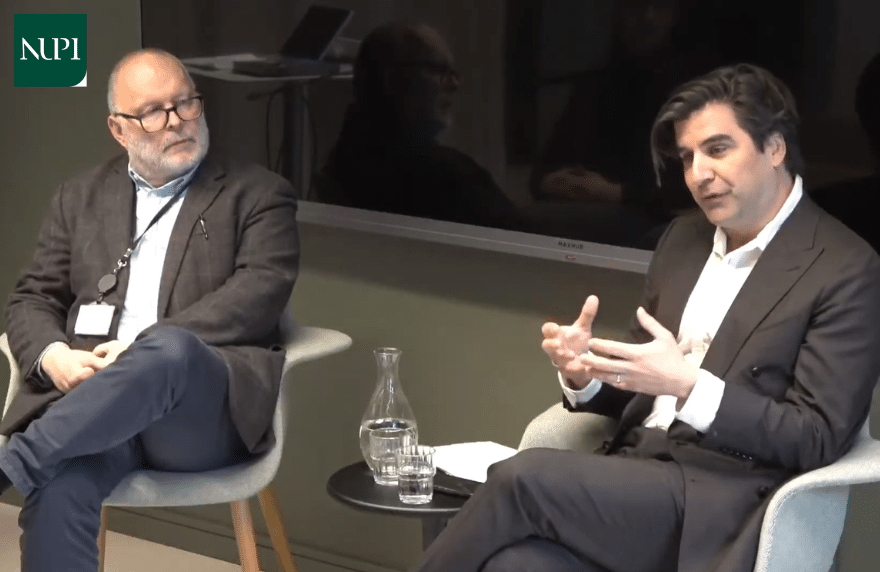 https://hcss.nl/wp-content/uploads/2025/02/NUPI-Tim-Sweijs-Oslo-Consequences-of-investments-for-national-security.png
572
880
Patrick Willemsen
https://hcss.nl/wp-content/uploads/2021/04/HCSS_Beeldmerk_Blauw_RGB1200-ppi-e1619025866259-300x300.png
Patrick Willemsen2025-02-28 15:16:042025-02-28 15:16:44Tim Sweijs | NUPI Symposium: Consequences of investments for national security
https://hcss.nl/wp-content/uploads/2025/02/NUPI-Tim-Sweijs-Oslo-Consequences-of-investments-for-national-security.png
572
880
Patrick Willemsen
https://hcss.nl/wp-content/uploads/2021/04/HCSS_Beeldmerk_Blauw_RGB1200-ppi-e1619025866259-300x300.png
Patrick Willemsen2025-02-28 15:16:042025-02-28 15:16:44Tim Sweijs | NUPI Symposium: Consequences of investments for national security https://hcss.nl/wp-content/uploads/2025/02/Amrish-Ritoe-Trump-Zelensky-and-the-Ukraine-rare-earth-saga.png
572
880
Patrick Willemsen
https://hcss.nl/wp-content/uploads/2021/04/HCSS_Beeldmerk_Blauw_RGB1200-ppi-e1619025866259-300x300.png
Patrick Willemsen2025-02-26 14:24:082025-02-26 14:24:09Amrish Ritoe | Trump, Zelensky and the Ukraine rare earth saga
https://hcss.nl/wp-content/uploads/2025/02/Amrish-Ritoe-Trump-Zelensky-and-the-Ukraine-rare-earth-saga.png
572
880
Patrick Willemsen
https://hcss.nl/wp-content/uploads/2021/04/HCSS_Beeldmerk_Blauw_RGB1200-ppi-e1619025866259-300x300.png
Patrick Willemsen2025-02-26 14:24:082025-02-26 14:24:09Amrish Ritoe | Trump, Zelensky and the Ukraine rare earth saga https://hcss.nl/wp-content/uploads/2025/01/energiepodium-rob-de-wijk-column.png
572
880
Patrick Willemsen
https://hcss.nl/wp-content/uploads/2021/04/HCSS_Beeldmerk_Blauw_RGB1200-ppi-e1619025866259-300x300.png
Patrick Willemsen2025-02-13 10:00:002025-02-13 12:32:41Column Energiepodium: Gas blijft rol spelen in de strijd tussen Rusland, de EU en VS
https://hcss.nl/wp-content/uploads/2025/01/energiepodium-rob-de-wijk-column.png
572
880
Patrick Willemsen
https://hcss.nl/wp-content/uploads/2021/04/HCSS_Beeldmerk_Blauw_RGB1200-ppi-e1619025866259-300x300.png
Patrick Willemsen2025-02-13 10:00:002025-02-13 12:32:41Column Energiepodium: Gas blijft rol spelen in de strijd tussen Rusland, de EU en VS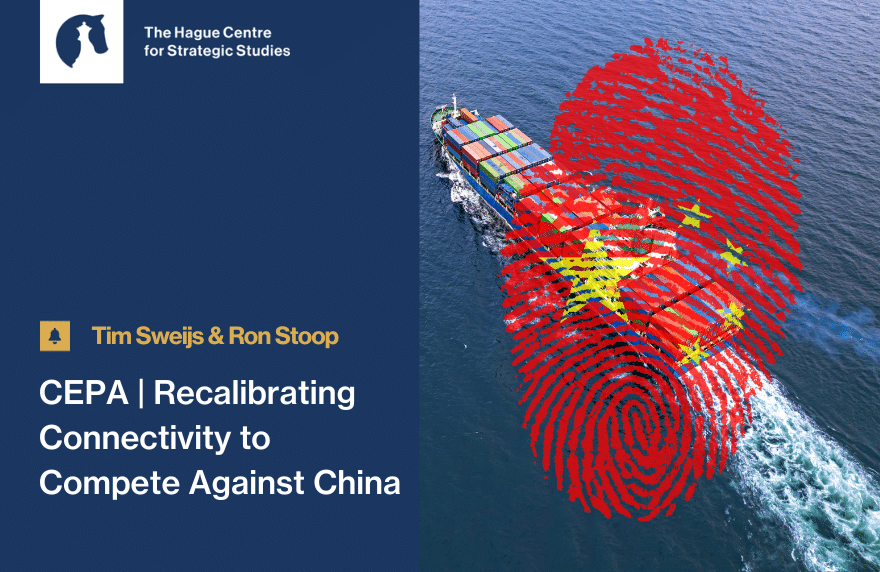 https://hcss.nl/wp-content/uploads/2025/02/CEPA-Tim-Sweijs-Ron-Stoop-Recalibrating-Connectivity-to-Compete-Against-China.png
572
880
Patrick Willemsen
https://hcss.nl/wp-content/uploads/2021/04/HCSS_Beeldmerk_Blauw_RGB1200-ppi-e1619025866259-300x300.png
Patrick Willemsen2025-02-05 08:53:592025-02-05 08:54:00CEPA | Tim Sweijs & Ron Stoop: Recalibrating Connectivity to Compete Against China
https://hcss.nl/wp-content/uploads/2025/02/CEPA-Tim-Sweijs-Ron-Stoop-Recalibrating-Connectivity-to-Compete-Against-China.png
572
880
Patrick Willemsen
https://hcss.nl/wp-content/uploads/2021/04/HCSS_Beeldmerk_Blauw_RGB1200-ppi-e1619025866259-300x300.png
Patrick Willemsen2025-02-05 08:53:592025-02-05 08:54:00CEPA | Tim Sweijs & Ron Stoop: Recalibrating Connectivity to Compete Against China https://hcss.nl/wp-content/uploads/2025/01/De-nieuwe-Bokito-wereldorde-met-Rob-de-Wijk-ongelooflijke-podcast.png
572
880
Patrick Willemsen
https://hcss.nl/wp-content/uploads/2021/04/HCSS_Beeldmerk_Blauw_RGB1200-ppi-e1619025866259-300x300.png
Patrick Willemsen2025-01-27 14:21:552025-01-27 14:21:57De Ongelooflijke Podcast | Rob de Wijk: de nieuwe ‘Bokito-wereldorde’ waarin Poetin en Trump ons uit elkaar spelen
https://hcss.nl/wp-content/uploads/2025/01/De-nieuwe-Bokito-wereldorde-met-Rob-de-Wijk-ongelooflijke-podcast.png
572
880
Patrick Willemsen
https://hcss.nl/wp-content/uploads/2021/04/HCSS_Beeldmerk_Blauw_RGB1200-ppi-e1619025866259-300x300.png
Patrick Willemsen2025-01-27 14:21:552025-01-27 14:21:57De Ongelooflijke Podcast | Rob de Wijk: de nieuwe ‘Bokito-wereldorde’ waarin Poetin en Trump ons uit elkaar spelen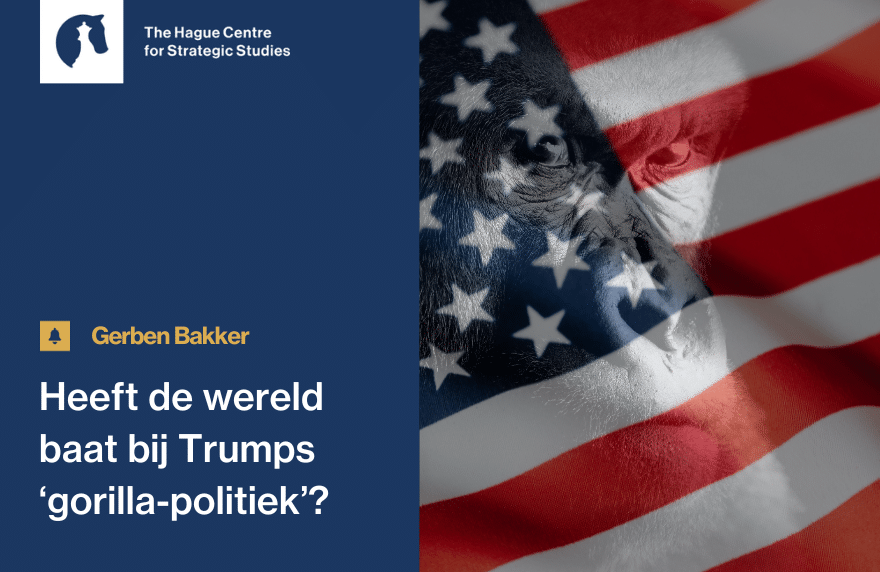 https://hcss.nl/wp-content/uploads/2025/01/gerben-bakker-trump-moreel-gorilla.png
572
880
Patrick Willemsen
https://hcss.nl/wp-content/uploads/2021/04/HCSS_Beeldmerk_Blauw_RGB1200-ppi-e1619025866259-300x300.png
Patrick Willemsen2025-01-24 10:00:002025-01-17 14:54:56Gerben Bakker | Heeft de wereld baat bij Trumps ‘gorilla-politiek’?
https://hcss.nl/wp-content/uploads/2025/01/gerben-bakker-trump-moreel-gorilla.png
572
880
Patrick Willemsen
https://hcss.nl/wp-content/uploads/2021/04/HCSS_Beeldmerk_Blauw_RGB1200-ppi-e1619025866259-300x300.png
Patrick Willemsen2025-01-24 10:00:002025-01-17 14:54:56Gerben Bakker | Heeft de wereld baat bij Trumps ‘gorilla-politiek’? https://hcss.nl/wp-content/uploads/2025/01/datenna-1.png
572
880
Stephanie Govaerts
https://hcss.nl/wp-content/uploads/2021/04/HCSS_Beeldmerk_Blauw_RGB1200-ppi-e1619025866259-300x300.png
Stephanie Govaerts2025-01-20 16:22:222025-01-20 16:23:13Protecting European AI-Related Innovations: Preventing Their Use in China’s Military Advancements
https://hcss.nl/wp-content/uploads/2025/01/datenna-1.png
572
880
Stephanie Govaerts
https://hcss.nl/wp-content/uploads/2021/04/HCSS_Beeldmerk_Blauw_RGB1200-ppi-e1619025866259-300x300.png
Stephanie Govaerts2025-01-20 16:22:222025-01-20 16:23:13Protecting European AI-Related Innovations: Preventing Their Use in China’s Military Advancements https://hcss.nl/wp-content/uploads/2025/01/Gerben-bakker-Hybride-dreiging-weerbaarheid-atlantisch-perspectief.png
572
880
Patrick Willemsen
https://hcss.nl/wp-content/uploads/2021/04/HCSS_Beeldmerk_Blauw_RGB1200-ppi-e1619025866259-300x300.png
Patrick Willemsen2025-01-03 11:23:362025-01-03 11:24:35Opinie | Het gevaar van de onbekende en onbenoemde dreiging
https://hcss.nl/wp-content/uploads/2025/01/Gerben-bakker-Hybride-dreiging-weerbaarheid-atlantisch-perspectief.png
572
880
Patrick Willemsen
https://hcss.nl/wp-content/uploads/2021/04/HCSS_Beeldmerk_Blauw_RGB1200-ppi-e1619025866259-300x300.png
Patrick Willemsen2025-01-03 11:23:362025-01-03 11:24:35Opinie | Het gevaar van de onbekende en onbenoemde dreiging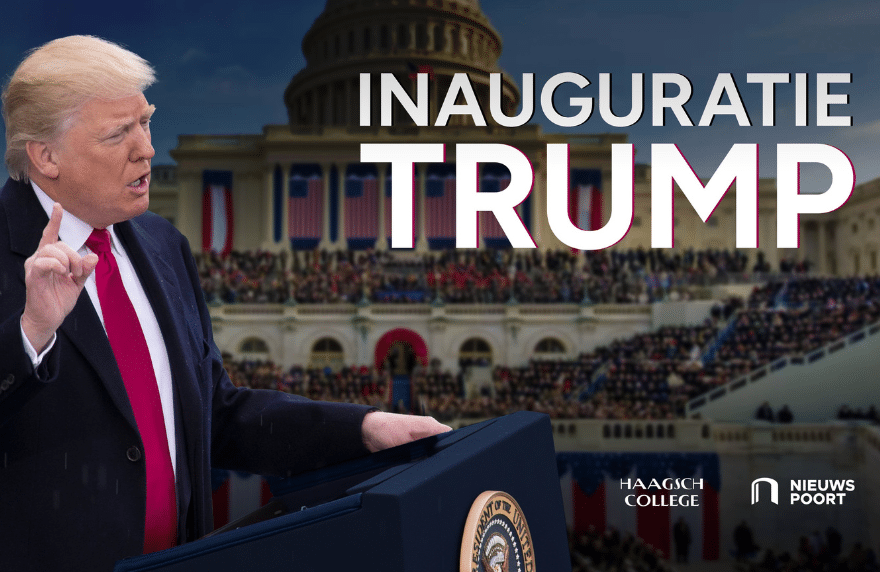 https://hcss.nl/wp-content/uploads/2025/01/inauguratie-trump-nieuwspoort-haagsch-college.png
572
880
Patrick Willemsen
https://hcss.nl/wp-content/uploads/2021/04/HCSS_Beeldmerk_Blauw_RGB1200-ppi-e1619025866259-300x300.png
Patrick Willemsen2025-01-02 15:34:182025-01-02 15:34:19Nieuwspoort en Haagsch College: De Inauguratie van Trump
https://hcss.nl/wp-content/uploads/2025/01/inauguratie-trump-nieuwspoort-haagsch-college.png
572
880
Patrick Willemsen
https://hcss.nl/wp-content/uploads/2021/04/HCSS_Beeldmerk_Blauw_RGB1200-ppi-e1619025866259-300x300.png
Patrick Willemsen2025-01-02 15:34:182025-01-02 15:34:19Nieuwspoort en Haagsch College: De Inauguratie van Trump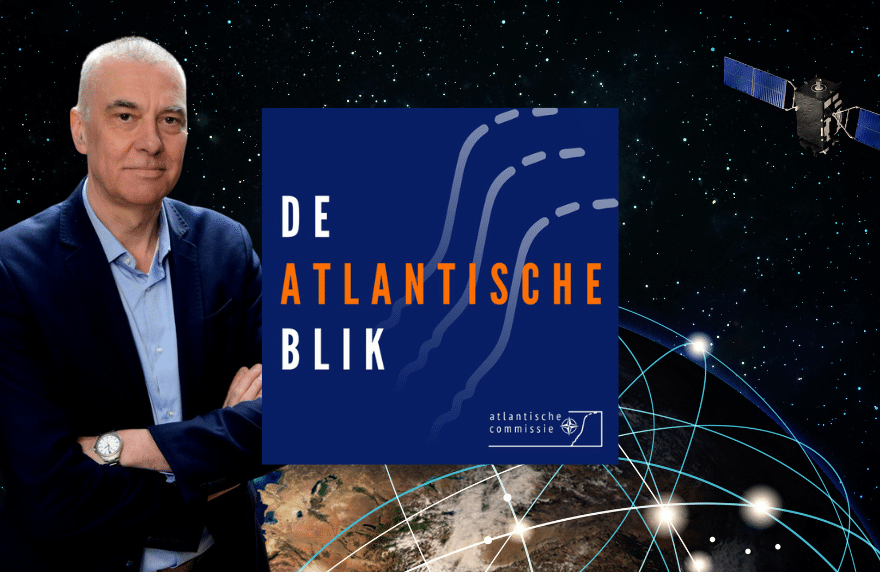 https://hcss.nl/wp-content/uploads/2024/12/patrick-bolder-space-podcast-atlantische-blik.png
572
880
Patrick Willemsen
https://hcss.nl/wp-content/uploads/2021/04/HCSS_Beeldmerk_Blauw_RGB1200-ppi-e1619025866259-300x300.png
Patrick Willemsen2024-12-20 15:41:232024-12-20 15:41:24Podcast Atlantische Blik | Patrick Bolder: Ook Nederland zou een zelfstandig space command moeten hebben
https://hcss.nl/wp-content/uploads/2024/12/patrick-bolder-space-podcast-atlantische-blik.png
572
880
Patrick Willemsen
https://hcss.nl/wp-content/uploads/2021/04/HCSS_Beeldmerk_Blauw_RGB1200-ppi-e1619025866259-300x300.png
Patrick Willemsen2024-12-20 15:41:232024-12-20 15:41:24Podcast Atlantische Blik | Patrick Bolder: Ook Nederland zou een zelfstandig space command moeten hebben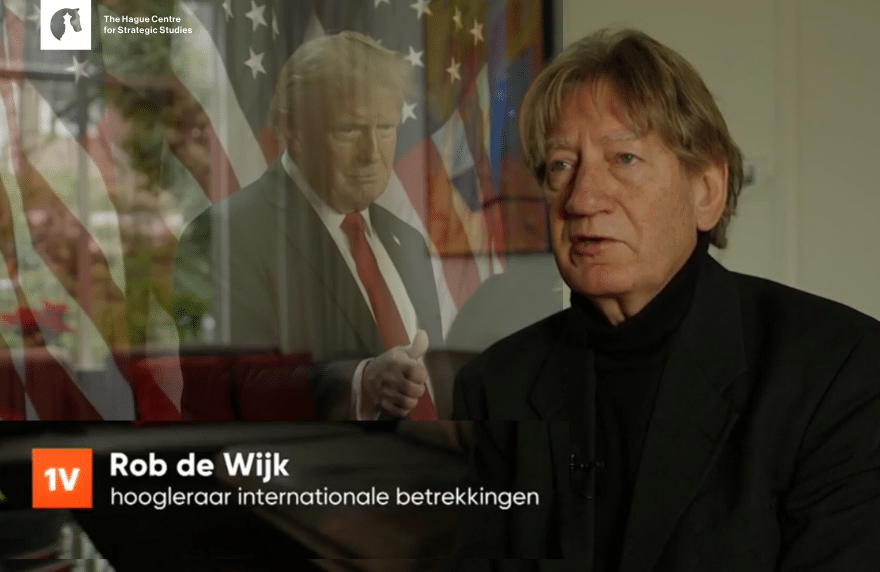 https://hcss.nl/wp-content/uploads/2024/12/EenVandaag-Rob-de-Wijk-oorlog-europa-oekraine-poetin-trump.png
572
880
Patrick Willemsen
https://hcss.nl/wp-content/uploads/2021/04/HCSS_Beeldmerk_Blauw_RGB1200-ppi-e1619025866259-300x300.png
Patrick Willemsen2024-12-17 13:22:442024-12-17 13:25:54EenVandaag | Rob de Wijk: “Gevaar dat Trump het op een akkoordje gaat gooien met Poetin”
https://hcss.nl/wp-content/uploads/2024/12/EenVandaag-Rob-de-Wijk-oorlog-europa-oekraine-poetin-trump.png
572
880
Patrick Willemsen
https://hcss.nl/wp-content/uploads/2021/04/HCSS_Beeldmerk_Blauw_RGB1200-ppi-e1619025866259-300x300.png
Patrick Willemsen2024-12-17 13:22:442024-12-17 13:25:54EenVandaag | Rob de Wijk: “Gevaar dat Trump het op een akkoordje gaat gooien met Poetin” https://hcss.nl/wp-content/uploads/2024/11/DAMON-datalab-dashboard-1.png
572
880
Stephanie Govaerts
https://hcss.nl/wp-content/uploads/2021/04/HCSS_Beeldmerk_Blauw_RGB1200-ppi-e1619025866259-300x300.png
Stephanie Govaerts2024-12-13 13:27:572025-03-20 15:40:59Event Recap | The Future World Order
https://hcss.nl/wp-content/uploads/2024/11/DAMON-datalab-dashboard-1.png
572
880
Stephanie Govaerts
https://hcss.nl/wp-content/uploads/2021/04/HCSS_Beeldmerk_Blauw_RGB1200-ppi-e1619025866259-300x300.png
Stephanie Govaerts2024-12-13 13:27:572025-03-20 15:40:59Event Recap | The Future World Order https://hcss.nl/wp-content/uploads/2024/03/Rob-de-Wijk-column-Lange-Voorhout.png
572
880
Patrick Willemsen
https://hcss.nl/wp-content/uploads/2021/04/HCSS_Beeldmerk_Blauw_RGB1200-ppi-e1619025866259-300x300.png
Patrick Willemsen2024-12-13 08:59:182025-02-17 11:47:12Column Rob de Wijk: De val van Assad kan uitdraaien op een grote vernedering voor Poetin
https://hcss.nl/wp-content/uploads/2024/03/Rob-de-Wijk-column-Lange-Voorhout.png
572
880
Patrick Willemsen
https://hcss.nl/wp-content/uploads/2021/04/HCSS_Beeldmerk_Blauw_RGB1200-ppi-e1619025866259-300x300.png
Patrick Willemsen2024-12-13 08:59:182025-02-17 11:47:12Column Rob de Wijk: De val van Assad kan uitdraaien op een grote vernedering voor Poetin https://hcss.nl/wp-content/uploads/2024/12/Rob-de-Wijk-column-energiepodium.png
572
880
Patrick Willemsen
https://hcss.nl/wp-content/uploads/2021/04/HCSS_Beeldmerk_Blauw_RGB1200-ppi-e1619025866259-300x300.png
Patrick Willemsen2024-12-03 08:43:542024-12-03 08:43:55Column Energiepodium: We will drill baby
https://hcss.nl/wp-content/uploads/2024/12/Rob-de-Wijk-column-energiepodium.png
572
880
Patrick Willemsen
https://hcss.nl/wp-content/uploads/2021/04/HCSS_Beeldmerk_Blauw_RGB1200-ppi-e1619025866259-300x300.png
Patrick Willemsen2024-12-03 08:43:542024-12-03 08:43:55Column Energiepodium: We will drill baby https://hcss.nl/wp-content/uploads/2024/11/DAMON-datalab-dashboard-1.png
572
880
Stephanie Govaerts
https://hcss.nl/wp-content/uploads/2021/04/HCSS_Beeldmerk_Blauw_RGB1200-ppi-e1619025866259-300x300.png
Stephanie Govaerts2024-11-29 11:52:032024-11-29 15:44:38The Hague Strategic Foresight Forum Talks | The Future World Order
https://hcss.nl/wp-content/uploads/2024/11/DAMON-datalab-dashboard-1.png
572
880
Stephanie Govaerts
https://hcss.nl/wp-content/uploads/2021/04/HCSS_Beeldmerk_Blauw_RGB1200-ppi-e1619025866259-300x300.png
Stephanie Govaerts2024-11-29 11:52:032024-11-29 15:44:38The Hague Strategic Foresight Forum Talks | The Future World Order https://hcss.nl/wp-content/uploads/2024/03/Rob-de-Wijk-column-Lange-Voorhout.png
572
880
Patrick Willemsen
https://hcss.nl/wp-content/uploads/2021/04/HCSS_Beeldmerk_Blauw_RGB1200-ppi-e1619025866259-300x300.png
Patrick Willemsen2024-11-15 08:35:392025-02-17 11:46:44Column Rob de Wijk: Trump 2 is potentieel gevaarlijker dan Trump 1 was
https://hcss.nl/wp-content/uploads/2024/03/Rob-de-Wijk-column-Lange-Voorhout.png
572
880
Patrick Willemsen
https://hcss.nl/wp-content/uploads/2021/04/HCSS_Beeldmerk_Blauw_RGB1200-ppi-e1619025866259-300x300.png
Patrick Willemsen2024-11-15 08:35:392025-02-17 11:46:44Column Rob de Wijk: Trump 2 is potentieel gevaarlijker dan Trump 1 was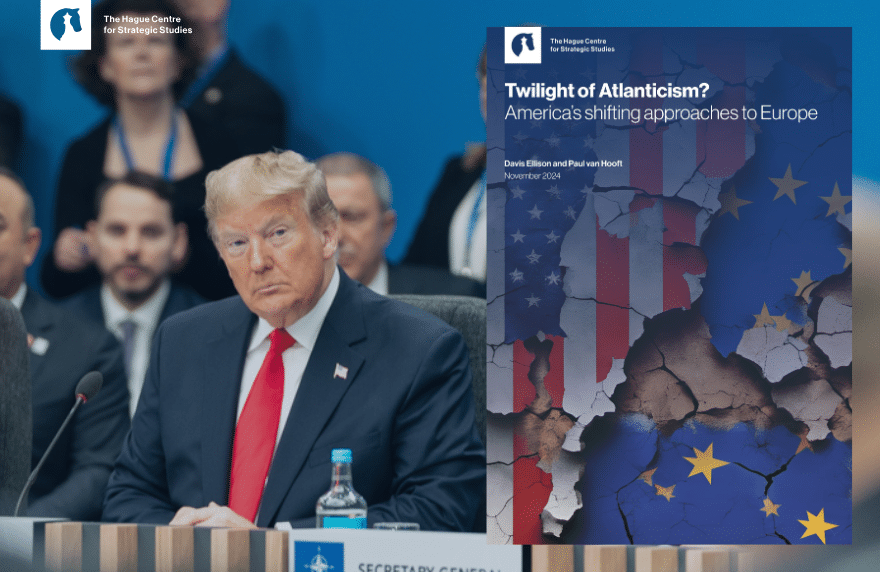 https://hcss.nl/wp-content/uploads/2024/11/new-report-Twilight-of-Atlanticism-Americas-shifting-approaches-to-Europe-1.png
572
880
Patrick Willemsen
https://hcss.nl/wp-content/uploads/2021/04/HCSS_Beeldmerk_Blauw_RGB1200-ppi-e1619025866259-300x300.png
Patrick Willemsen2024-11-11 09:15:342024-11-11 11:38:05New HCSS report: Major shift in Transatlantic Relations could impact NATO, EU, and European defence policy
https://hcss.nl/wp-content/uploads/2024/11/new-report-Twilight-of-Atlanticism-Americas-shifting-approaches-to-Europe-1.png
572
880
Patrick Willemsen
https://hcss.nl/wp-content/uploads/2021/04/HCSS_Beeldmerk_Blauw_RGB1200-ppi-e1619025866259-300x300.png
Patrick Willemsen2024-11-11 09:15:342024-11-11 11:38:05New HCSS report: Major shift in Transatlantic Relations could impact NATO, EU, and European defence policy https://hcss.nl/wp-content/uploads/2023/12/De-Strateeg-BNR-HCSS-website-banner-1.png
572
880
Patrick Willemsen
https://hcss.nl/wp-content/uploads/2021/04/HCSS_Beeldmerk_Blauw_RGB1200-ppi-e1619025866259-300x300.png
Patrick Willemsen2024-11-11 08:55:002024-11-11 11:12:35Strategische Vragen | De Strateeg: Is de VS écht zo gepolariseerd?
https://hcss.nl/wp-content/uploads/2023/12/De-Strateeg-BNR-HCSS-website-banner-1.png
572
880
Patrick Willemsen
https://hcss.nl/wp-content/uploads/2021/04/HCSS_Beeldmerk_Blauw_RGB1200-ppi-e1619025866259-300x300.png
Patrick Willemsen2024-11-11 08:55:002024-11-11 11:12:35Strategische Vragen | De Strateeg: Is de VS écht zo gepolariseerd?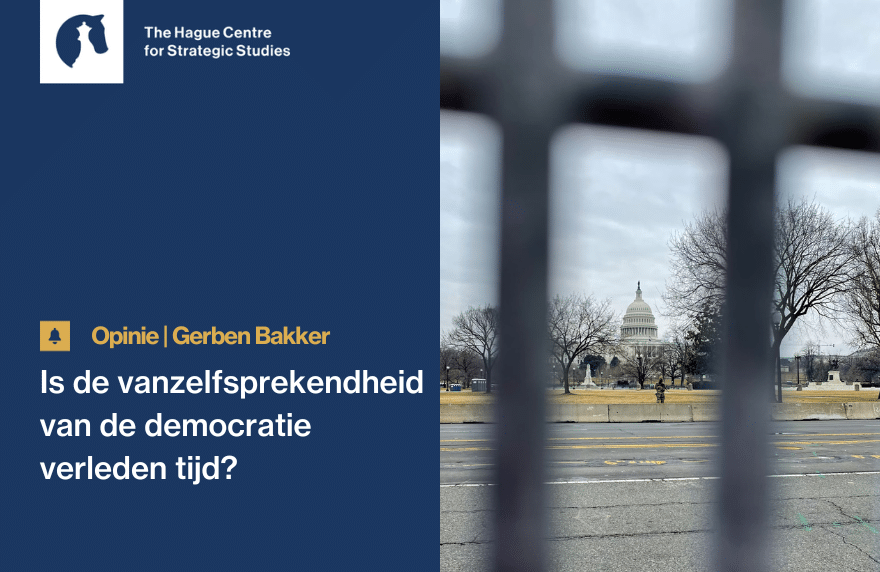 https://hcss.nl/wp-content/uploads/2024/11/gerben-bakker-Is-de-vanzelfsprekendheid-van-de-democratie-verleden-tijd.png
572
880
Patrick Willemsen
https://hcss.nl/wp-content/uploads/2021/04/HCSS_Beeldmerk_Blauw_RGB1200-ppi-e1619025866259-300x300.png
Patrick Willemsen2024-11-07 09:30:002024-11-04 16:37:53Opinie | Gerben Bakker: Is de vanzelfsprekendheid van de democratie verleden tijd?
https://hcss.nl/wp-content/uploads/2024/11/gerben-bakker-Is-de-vanzelfsprekendheid-van-de-democratie-verleden-tijd.png
572
880
Patrick Willemsen
https://hcss.nl/wp-content/uploads/2021/04/HCSS_Beeldmerk_Blauw_RGB1200-ppi-e1619025866259-300x300.png
Patrick Willemsen2024-11-07 09:30:002024-11-04 16:37:53Opinie | Gerben Bakker: Is de vanzelfsprekendheid van de democratie verleden tijd? https://hcss.nl/wp-content/uploads/2023/12/De-Strateeg-BNR-HCSS-website-banner-1.png
572
880
Patrick Willemsen
https://hcss.nl/wp-content/uploads/2021/04/HCSS_Beeldmerk_Blauw_RGB1200-ppi-e1619025866259-300x300.png
Patrick Willemsen2024-11-04 09:10:402024-11-04 09:10:41De Strateeg: Hoe polarisatie in de Verenigde Staten het laatste restje samenhang verdunt
https://hcss.nl/wp-content/uploads/2023/12/De-Strateeg-BNR-HCSS-website-banner-1.png
572
880
Patrick Willemsen
https://hcss.nl/wp-content/uploads/2021/04/HCSS_Beeldmerk_Blauw_RGB1200-ppi-e1619025866259-300x300.png
Patrick Willemsen2024-11-04 09:10:402024-11-04 09:10:41De Strateeg: Hoe polarisatie in de Verenigde Staten het laatste restje samenhang verdunt https://hcss.nl/wp-content/uploads/2024/03/Rob-de-Wijk-column-Lange-Voorhout.png
572
880
Patrick Willemsen
https://hcss.nl/wp-content/uploads/2021/04/HCSS_Beeldmerk_Blauw_RGB1200-ppi-e1619025866259-300x300.png
Patrick Willemsen2024-10-31 23:39:362025-02-17 11:46:18Column Rob de Wijk: Als Trump wint, kunnen we Elon Musk een oligarch gaan noemen. En dat is niet overdreven
https://hcss.nl/wp-content/uploads/2024/03/Rob-de-Wijk-column-Lange-Voorhout.png
572
880
Patrick Willemsen
https://hcss.nl/wp-content/uploads/2021/04/HCSS_Beeldmerk_Blauw_RGB1200-ppi-e1619025866259-300x300.png
Patrick Willemsen2024-10-31 23:39:362025-02-17 11:46:18Column Rob de Wijk: Als Trump wint, kunnen we Elon Musk een oligarch gaan noemen. En dat is niet overdreven https://hcss.nl/wp-content/uploads/2024/10/Rob-de-Wijk-De-gevolgen-van-de-Amerikaanse-verkiezingen-voor-de-Europese-agrifoodbusiness-1.png
572
880
Patrick Willemsen
https://hcss.nl/wp-content/uploads/2021/04/HCSS_Beeldmerk_Blauw_RGB1200-ppi-e1619025866259-300x300.png
Patrick Willemsen2024-10-29 10:00:002024-10-28 10:04:17Rob de Wijk: De gevolgen van de Amerikaanse verkiezingen voor de Europese agrifoodbusiness
https://hcss.nl/wp-content/uploads/2024/10/Rob-de-Wijk-De-gevolgen-van-de-Amerikaanse-verkiezingen-voor-de-Europese-agrifoodbusiness-1.png
572
880
Patrick Willemsen
https://hcss.nl/wp-content/uploads/2021/04/HCSS_Beeldmerk_Blauw_RGB1200-ppi-e1619025866259-300x300.png
Patrick Willemsen2024-10-29 10:00:002024-10-28 10:04:17Rob de Wijk: De gevolgen van de Amerikaanse verkiezingen voor de Europese agrifoodbusiness https://hcss.nl/wp-content/uploads/2024/10/De-Strateeg-tim-sweijs-steven-everts.png
572
880
Patrick Willemsen
https://hcss.nl/wp-content/uploads/2021/04/HCSS_Beeldmerk_Blauw_RGB1200-ppi-e1619025866259-300x300.png
Patrick Willemsen2024-10-28 09:11:572024-10-28 09:11:58Strategische Vragen | De Strateeg: Wat als China, Rusland, Noord-Korea en Japan zich op Europa storten?
https://hcss.nl/wp-content/uploads/2024/10/De-Strateeg-tim-sweijs-steven-everts.png
572
880
Patrick Willemsen
https://hcss.nl/wp-content/uploads/2021/04/HCSS_Beeldmerk_Blauw_RGB1200-ppi-e1619025866259-300x300.png
Patrick Willemsen2024-10-28 09:11:572024-10-28 09:11:58Strategische Vragen | De Strateeg: Wat als China, Rusland, Noord-Korea en Japan zich op Europa storten? https://hcss.nl/wp-content/uploads/2024/10/Chinese-Scholarly-Perspectives-on-the-US-Promoted-Indo-Pacific-Concept-and-Strategy.png
572
880
Patrick Willemsen
https://hcss.nl/wp-content/uploads/2021/04/HCSS_Beeldmerk_Blauw_RGB1200-ppi-e1619025866259-300x300.png
Patrick Willemsen2024-10-25 15:51:402024-11-14 11:50:41Friso Stevens | Chinese Scholarly Perspectives on the US-Promoted “Indo-Pacific” Concept and Strategy
https://hcss.nl/wp-content/uploads/2024/10/Chinese-Scholarly-Perspectives-on-the-US-Promoted-Indo-Pacific-Concept-and-Strategy.png
572
880
Patrick Willemsen
https://hcss.nl/wp-content/uploads/2021/04/HCSS_Beeldmerk_Blauw_RGB1200-ppi-e1619025866259-300x300.png
Patrick Willemsen2024-10-25 15:51:402024-11-14 11:50:41Friso Stevens | Chinese Scholarly Perspectives on the US-Promoted “Indo-Pacific” Concept and Strategy https://hcss.nl/wp-content/uploads/2024/10/Tim-Sweijs-Atlantisch-Perspectief-De-slinger-van-een-wereldrijk.png
572
880
Patrick Willemsen
https://hcss.nl/wp-content/uploads/2021/04/HCSS_Beeldmerk_Blauw_RGB1200-ppi-e1619025866259-300x300.png
Patrick Willemsen2024-10-25 10:00:002024-10-23 12:15:30Tim Sweijs | Atlantisch Perspectief: De slinger van een wereldrijk
https://hcss.nl/wp-content/uploads/2024/10/Tim-Sweijs-Atlantisch-Perspectief-De-slinger-van-een-wereldrijk.png
572
880
Patrick Willemsen
https://hcss.nl/wp-content/uploads/2021/04/HCSS_Beeldmerk_Blauw_RGB1200-ppi-e1619025866259-300x300.png
Patrick Willemsen2024-10-25 10:00:002024-10-23 12:15:30Tim Sweijs | Atlantisch Perspectief: De slinger van een wereldrijk https://hcss.nl/wp-content/uploads/2023/05/Boekestijn-en-de-Wijk-live-theatertour-2023-3.png
572
880
Patrick Willemsen
https://hcss.nl/wp-content/uploads/2021/04/HCSS_Beeldmerk_Blauw_RGB1200-ppi-e1619025866259-300x300.png
Patrick Willemsen2024-10-24 10:00:002024-10-18 14:46:12Boekestijn en De Wijk | Hun oorlogspodcast is een grote hit: ‘Tijd van westerse wereldheerschappij is voorbij’
https://hcss.nl/wp-content/uploads/2023/05/Boekestijn-en-de-Wijk-live-theatertour-2023-3.png
572
880
Patrick Willemsen
https://hcss.nl/wp-content/uploads/2021/04/HCSS_Beeldmerk_Blauw_RGB1200-ppi-e1619025866259-300x300.png
Patrick Willemsen2024-10-24 10:00:002024-10-18 14:46:12Boekestijn en De Wijk | Hun oorlogspodcast is een grote hit: ‘Tijd van westerse wereldheerschappij is voorbij’ https://hcss.nl/wp-content/uploads/2024/10/De-Strateeg-tim-sweijs-steven-everts.png
572
880
Patrick Willemsen
https://hcss.nl/wp-content/uploads/2021/04/HCSS_Beeldmerk_Blauw_RGB1200-ppi-e1619025866259-300x300.png
Patrick Willemsen2024-10-21 09:10:002024-10-22 10:47:09De Strateeg: ‘Steun Oekraïne zonder VS zou maar 70 euro per EU-burger kosten’
https://hcss.nl/wp-content/uploads/2024/10/De-Strateeg-tim-sweijs-steven-everts.png
572
880
Patrick Willemsen
https://hcss.nl/wp-content/uploads/2021/04/HCSS_Beeldmerk_Blauw_RGB1200-ppi-e1619025866259-300x300.png
Patrick Willemsen2024-10-21 09:10:002024-10-22 10:47:09De Strateeg: ‘Steun Oekraïne zonder VS zou maar 70 euro per EU-burger kosten’ https://hcss.nl/wp-content/uploads/2024/10/De-Strateeg-tim-sweijs-steven-everts.png
572
880
Patrick Willemsen
https://hcss.nl/wp-content/uploads/2021/04/HCSS_Beeldmerk_Blauw_RGB1200-ppi-e1619025866259-300x300.png
Patrick Willemsen2024-10-21 08:54:522024-10-22 10:47:43De Strateeg: ”De EU moet zich focussen op Oekraïne en niet op het Midden-Oosten”
https://hcss.nl/wp-content/uploads/2024/10/De-Strateeg-tim-sweijs-steven-everts.png
572
880
Patrick Willemsen
https://hcss.nl/wp-content/uploads/2021/04/HCSS_Beeldmerk_Blauw_RGB1200-ppi-e1619025866259-300x300.png
Patrick Willemsen2024-10-21 08:54:522024-10-22 10:47:43De Strateeg: ”De EU moet zich focussen op Oekraïne en niet op het Midden-Oosten” https://hcss.nl/wp-content/uploads/2024/10/Far-Seas-Hard-Choices-Indo-Pacific.png
572
880
Patrick Willemsen
https://hcss.nl/wp-content/uploads/2021/04/HCSS_Beeldmerk_Blauw_RGB1200-ppi-e1619025866259-300x300.png
Patrick Willemsen2024-10-14 09:00:002025-11-11 09:24:52New policy brief: Aligning ambitious European objectives with capabilities and coalitions for the Indo-Pacific
https://hcss.nl/wp-content/uploads/2024/10/Far-Seas-Hard-Choices-Indo-Pacific.png
572
880
Patrick Willemsen
https://hcss.nl/wp-content/uploads/2021/04/HCSS_Beeldmerk_Blauw_RGB1200-ppi-e1619025866259-300x300.png
Patrick Willemsen2024-10-14 09:00:002025-11-11 09:24:52New policy brief: Aligning ambitious European objectives with capabilities and coalitions for the Indo-Pacific https://hcss.nl/wp-content/uploads/2024/10/De-Strateeg-Ron-Stoop-Tom-Berendsen-1.png
572
880
Patrick Willemsen
https://hcss.nl/wp-content/uploads/2021/04/HCSS_Beeldmerk_Blauw_RGB1200-ppi-e1619025866259-300x300.png
Patrick Willemsen2024-10-14 08:54:142024-10-14 08:56:57Strategische Vragen | De Strateeg: Is Europese innovatie noodzaak?
https://hcss.nl/wp-content/uploads/2024/10/De-Strateeg-Ron-Stoop-Tom-Berendsen-1.png
572
880
Patrick Willemsen
https://hcss.nl/wp-content/uploads/2021/04/HCSS_Beeldmerk_Blauw_RGB1200-ppi-e1619025866259-300x300.png
Patrick Willemsen2024-10-14 08:54:142024-10-14 08:56:57Strategische Vragen | De Strateeg: Is Europese innovatie noodzaak? https://hcss.nl/wp-content/uploads/2024/10/De-Strateeg-Ron-Stoop-Tom-Berendsen-1.png
572
880
Patrick Willemsen
https://hcss.nl/wp-content/uploads/2021/04/HCSS_Beeldmerk_Blauw_RGB1200-ppi-e1619025866259-300x300.png
Patrick Willemsen2024-10-07 10:00:102024-10-07 10:00:12De Strateeg: De EU staat voor onmogelijke keuzes en dit maakt ons afhankelijk van de rest van de wereld
https://hcss.nl/wp-content/uploads/2024/10/De-Strateeg-Ron-Stoop-Tom-Berendsen-1.png
572
880
Patrick Willemsen
https://hcss.nl/wp-content/uploads/2021/04/HCSS_Beeldmerk_Blauw_RGB1200-ppi-e1619025866259-300x300.png
Patrick Willemsen2024-10-07 10:00:102024-10-07 10:00:12De Strateeg: De EU staat voor onmogelijke keuzes en dit maakt ons afhankelijk van de rest van de wereld https://hcss.nl/wp-content/uploads/2024/03/Rob-de-Wijk-column-Lange-Voorhout.png
572
880
Patrick Willemsen
https://hcss.nl/wp-content/uploads/2021/04/HCSS_Beeldmerk_Blauw_RGB1200-ppi-e1619025866259-300x300.png
Patrick Willemsen2024-10-04 08:57:112025-02-17 11:45:38Column Rob de Wijk: Rusland, Israël en Iran hebben ego’s maar geen strategie
https://hcss.nl/wp-content/uploads/2024/03/Rob-de-Wijk-column-Lange-Voorhout.png
572
880
Patrick Willemsen
https://hcss.nl/wp-content/uploads/2021/04/HCSS_Beeldmerk_Blauw_RGB1200-ppi-e1619025866259-300x300.png
Patrick Willemsen2024-10-04 08:57:112025-02-17 11:45:38Column Rob de Wijk: Rusland, Israël en Iran hebben ego’s maar geen strategie https://hcss.nl/wp-content/uploads/2024/03/Rob-de-Wijk-column-Lange-Voorhout.png
572
880
Patrick Willemsen
https://hcss.nl/wp-content/uploads/2021/04/HCSS_Beeldmerk_Blauw_RGB1200-ppi-e1619025866259-300x300.png
Patrick Willemsen2024-09-27 08:41:262025-02-17 11:45:33Column Rob de Wijk: Het conflict in het Midden-Oosten kan leiden tot Amerikaans machtsverval
https://hcss.nl/wp-content/uploads/2024/03/Rob-de-Wijk-column-Lange-Voorhout.png
572
880
Patrick Willemsen
https://hcss.nl/wp-content/uploads/2021/04/HCSS_Beeldmerk_Blauw_RGB1200-ppi-e1619025866259-300x300.png
Patrick Willemsen2024-09-27 08:41:262025-02-17 11:45:33Column Rob de Wijk: Het conflict in het Midden-Oosten kan leiden tot Amerikaans machtsverval https://hcss.nl/wp-content/uploads/2024/07/Jeffrey-H.-Michaels-joins-HCSS-as-strategic-advisor.jpg
572
880
Patrick Willemsen
https://hcss.nl/wp-content/uploads/2021/04/HCSS_Beeldmerk_Blauw_RGB1200-ppi-e1619025866259-300x300.png
Patrick Willemsen2024-07-30 15:58:002024-07-30 16:41:44Jeffrey H. Michaels joins HCSS as Strategic Advisor in Defence and International Security.
https://hcss.nl/wp-content/uploads/2024/07/Jeffrey-H.-Michaels-joins-HCSS-as-strategic-advisor.jpg
572
880
Patrick Willemsen
https://hcss.nl/wp-content/uploads/2021/04/HCSS_Beeldmerk_Blauw_RGB1200-ppi-e1619025866259-300x300.png
Patrick Willemsen2024-07-30 15:58:002024-07-30 16:41:44Jeffrey H. Michaels joins HCSS as Strategic Advisor in Defence and International Security. https://hcss.nl/wp-content/uploads/2024/07/Job-vacancy-Senior-strategic-analyst.png
572
880
Patrick Willemsen
https://hcss.nl/wp-content/uploads/2021/04/HCSS_Beeldmerk_Blauw_RGB1200-ppi-e1619025866259-300x300.png
Patrick Willemsen2024-07-16 10:11:142024-07-16 10:11:15Vacancy: Senior Strategic Analyst
https://hcss.nl/wp-content/uploads/2024/07/Job-vacancy-Senior-strategic-analyst.png
572
880
Patrick Willemsen
https://hcss.nl/wp-content/uploads/2021/04/HCSS_Beeldmerk_Blauw_RGB1200-ppi-e1619025866259-300x300.png
Patrick Willemsen2024-07-16 10:11:142024-07-16 10:11:15Vacancy: Senior Strategic Analyst https://hcss.nl/wp-content/uploads/2024/07/NATO-Summit-Washington-insights.png
572
880
Patrick Willemsen
https://hcss.nl/wp-content/uploads/2021/04/HCSS_Beeldmerk_Blauw_RGB1200-ppi-e1619025866259-300x300.png
Patrick Willemsen2024-07-16 09:00:002024-07-16 10:34:56HCSS Insights from the NATO Summit in Washington D.C.
https://hcss.nl/wp-content/uploads/2024/07/NATO-Summit-Washington-insights.png
572
880
Patrick Willemsen
https://hcss.nl/wp-content/uploads/2021/04/HCSS_Beeldmerk_Blauw_RGB1200-ppi-e1619025866259-300x300.png
Patrick Willemsen2024-07-16 09:00:002024-07-16 10:34:56HCSS Insights from the NATO Summit in Washington D.C. https://hcss.nl/wp-content/uploads/2024/03/Rob-de-Wijk-column-Lange-Voorhout.png
572
880
Patrick Willemsen
https://hcss.nl/wp-content/uploads/2021/04/HCSS_Beeldmerk_Blauw_RGB1200-ppi-e1619025866259-300x300.png
Patrick Willemsen2024-06-13 16:16:412025-02-17 11:44:10Column Rob de Wijk: De fut is eruit bij Europa
https://hcss.nl/wp-content/uploads/2024/03/Rob-de-Wijk-column-Lange-Voorhout.png
572
880
Patrick Willemsen
https://hcss.nl/wp-content/uploads/2021/04/HCSS_Beeldmerk_Blauw_RGB1200-ppi-e1619025866259-300x300.png
Patrick Willemsen2024-06-13 16:16:412025-02-17 11:44:10Column Rob de Wijk: De fut is eruit bij Europa https://hcss.nl/wp-content/uploads/2024/06/SENIOR-strategisch-analist-vacature-job-alert.png
572
880
Patrick Willemsen
https://hcss.nl/wp-content/uploads/2021/04/HCSS_Beeldmerk_Blauw_RGB1200-ppi-e1619025866259-300x300.png
Patrick Willemsen2024-06-06 11:42:062024-07-05 14:41:31HCSS Vacature: Strategisch Analist (senior)
https://hcss.nl/wp-content/uploads/2024/06/SENIOR-strategisch-analist-vacature-job-alert.png
572
880
Patrick Willemsen
https://hcss.nl/wp-content/uploads/2021/04/HCSS_Beeldmerk_Blauw_RGB1200-ppi-e1619025866259-300x300.png
Patrick Willemsen2024-06-06 11:42:062024-07-05 14:41:31HCSS Vacature: Strategisch Analist (senior) https://hcss.nl/wp-content/uploads/2024/05/HCSS-NATO-Summits-series-The-Hague.png
572
880
Patrick Willemsen
https://hcss.nl/wp-content/uploads/2021/04/HCSS_Beeldmerk_Blauw_RGB1200-ppi-e1619025866259-300x300.png
Patrick Willemsen2024-05-24 15:00:002024-10-22 10:09:07The Hague to be host city of the 2025 NATO Summit
https://hcss.nl/wp-content/uploads/2024/05/HCSS-NATO-Summits-series-The-Hague.png
572
880
Patrick Willemsen
https://hcss.nl/wp-content/uploads/2021/04/HCSS_Beeldmerk_Blauw_RGB1200-ppi-e1619025866259-300x300.png
Patrick Willemsen2024-05-24 15:00:002024-10-22 10:09:07The Hague to be host city of the 2025 NATO Summit https://hcss.nl/wp-content/uploads/2024/05/HCSS-NATO-Summits-series-The-Hague.png
572
880
Patrick Willemsen
https://hcss.nl/wp-content/uploads/2021/04/HCSS_Beeldmerk_Blauw_RGB1200-ppi-e1619025866259-300x300.png
Patrick Willemsen2024-05-24 15:00:002024-10-22 10:09:56Den Haag gaststad van de NAVO-top in 2025
https://hcss.nl/wp-content/uploads/2024/05/HCSS-NATO-Summits-series-The-Hague.png
572
880
Patrick Willemsen
https://hcss.nl/wp-content/uploads/2021/04/HCSS_Beeldmerk_Blauw_RGB1200-ppi-e1619025866259-300x300.png
Patrick Willemsen2024-05-24 15:00:002024-10-22 10:09:56Den Haag gaststad van de NAVO-top in 2025 https://hcss.nl/wp-content/uploads/2024/05/NATOs-75th-Anniversary-from-Madrid-to-Washington-with-Han-ten-Broeke-1.png
572
880
Patrick Willemsen
https://hcss.nl/wp-content/uploads/2021/04/HCSS_Beeldmerk_Blauw_RGB1200-ppi-e1619025866259-300x300.png
Patrick Willemsen2024-05-08 11:02:182024-05-08 11:12:24Rewatch: NATO’s 75th Anniversary, from Madrid to Washington
https://hcss.nl/wp-content/uploads/2024/05/NATOs-75th-Anniversary-from-Madrid-to-Washington-with-Han-ten-Broeke-1.png
572
880
Patrick Willemsen
https://hcss.nl/wp-content/uploads/2021/04/HCSS_Beeldmerk_Blauw_RGB1200-ppi-e1619025866259-300x300.png
Patrick Willemsen2024-05-08 11:02:182024-05-08 11:12:24Rewatch: NATO’s 75th Anniversary, from Madrid to Washington https://hcss.nl/wp-content/uploads/2024/05/Paul-van-Hooft-Davis-Ellison-Atlantisch-Perspectief-NATO-Indo-Pacific.png
572
880
Patrick Willemsen
https://hcss.nl/wp-content/uploads/2021/04/HCSS_Beeldmerk_Blauw_RGB1200-ppi-e1619025866259-300x300.png
Patrick Willemsen2024-05-08 10:00:002024-05-01 13:17:12Opinion | NATO should not go to the Indo-Pacific
https://hcss.nl/wp-content/uploads/2024/05/Paul-van-Hooft-Davis-Ellison-Atlantisch-Perspectief-NATO-Indo-Pacific.png
572
880
Patrick Willemsen
https://hcss.nl/wp-content/uploads/2021/04/HCSS_Beeldmerk_Blauw_RGB1200-ppi-e1619025866259-300x300.png
Patrick Willemsen2024-05-08 10:00:002024-05-01 13:17:12Opinion | NATO should not go to the Indo-Pacific https://hcss.nl/wp-content/uploads/2024/04/Public-conference-NATOs-75th-Anniversary-from-Madrid-to-Washington.png
572
880
Patrick Willemsen
https://hcss.nl/wp-content/uploads/2021/04/HCSS_Beeldmerk_Blauw_RGB1200-ppi-e1619025866259-300x300.png
Patrick Willemsen2024-04-29 13:57:392024-04-29 13:57:40Conference: NATO’s 75th Anniversary: from Madrid to Washington
https://hcss.nl/wp-content/uploads/2024/04/Public-conference-NATOs-75th-Anniversary-from-Madrid-to-Washington.png
572
880
Patrick Willemsen
https://hcss.nl/wp-content/uploads/2021/04/HCSS_Beeldmerk_Blauw_RGB1200-ppi-e1619025866259-300x300.png
Patrick Willemsen2024-04-29 13:57:392024-04-29 13:57:40Conference: NATO’s 75th Anniversary: from Madrid to Washington https://hcss.nl/wp-content/uploads/2024/04/War-on-the-rocks-sweijs-van-hooft-taiwan-europe.png
572
880
Patrick Willemsen
https://hcss.nl/wp-content/uploads/2021/04/HCSS_Beeldmerk_Blauw_RGB1200-ppi-e1619025866259-300x300.png
Patrick Willemsen2024-04-24 10:00:002024-04-16 10:16:25War On The Rocks | A Two-Theater Tragedy: A Reluctant Europe Cannot Easily Escape a Sino-American War over Taiwan
https://hcss.nl/wp-content/uploads/2024/04/War-on-the-rocks-sweijs-van-hooft-taiwan-europe.png
572
880
Patrick Willemsen
https://hcss.nl/wp-content/uploads/2021/04/HCSS_Beeldmerk_Blauw_RGB1200-ppi-e1619025866259-300x300.png
Patrick Willemsen2024-04-24 10:00:002024-04-16 10:16:25War On The Rocks | A Two-Theater Tragedy: A Reluctant Europe Cannot Easily Escape a Sino-American War over Taiwan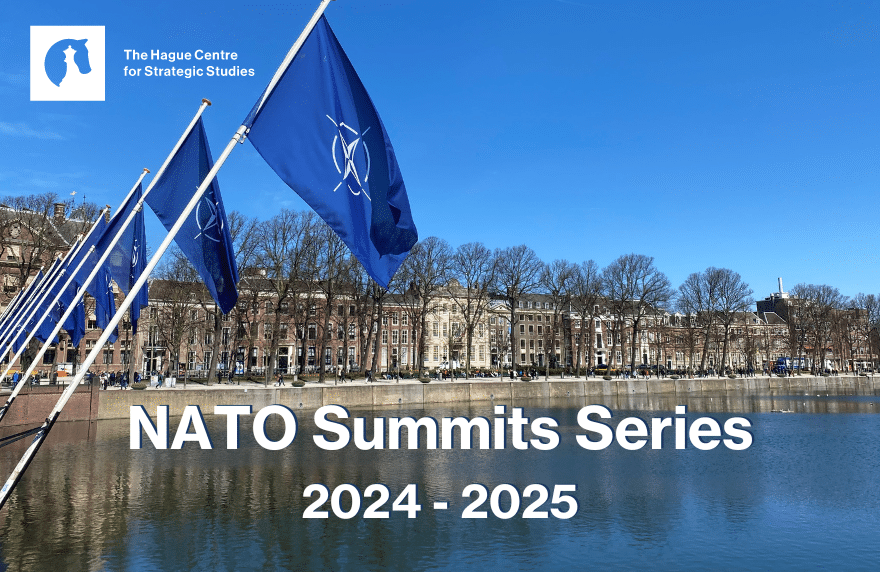 https://hcss.nl/wp-content/uploads/2024/03/HCSS-NATO-Summits-series-banner-.png
572
880
Patrick Willemsen
https://hcss.nl/wp-content/uploads/2021/04/HCSS_Beeldmerk_Blauw_RGB1200-ppi-e1619025866259-300x300.png
Patrick Willemsen2024-04-04 08:00:002024-04-04 09:04:02NATO Summits Series 2024-2025
https://hcss.nl/wp-content/uploads/2024/03/HCSS-NATO-Summits-series-banner-.png
572
880
Patrick Willemsen
https://hcss.nl/wp-content/uploads/2021/04/HCSS_Beeldmerk_Blauw_RGB1200-ppi-e1619025866259-300x300.png
Patrick Willemsen2024-04-04 08:00:002024-04-04 09:04:02NATO Summits Series 2024-2025 https://hcss.nl/wp-content/uploads/2024/03/The-Future-of-Nuclear-Arms-Control-and-the-Impact-of-the-Russia-Ukraine-War.png
572
880
Patrick Willemsen
https://hcss.nl/wp-content/uploads/2021/04/HCSS_Beeldmerk_Blauw_RGB1200-ppi-e1619025866259-300x300.png
Patrick Willemsen2024-03-21 14:00:522024-03-22 12:43:59The Future of Nuclear Arms Control and the Impact of the Russia-Ukraine War
https://hcss.nl/wp-content/uploads/2024/03/The-Future-of-Nuclear-Arms-Control-and-the-Impact-of-the-Russia-Ukraine-War.png
572
880
Patrick Willemsen
https://hcss.nl/wp-content/uploads/2021/04/HCSS_Beeldmerk_Blauw_RGB1200-ppi-e1619025866259-300x300.png
Patrick Willemsen2024-03-21 14:00:522024-03-22 12:43:59The Future of Nuclear Arms Control and the Impact of the Russia-Ukraine War https://hcss.nl/wp-content/uploads/2024/01/Getting-Them-On-Board-Indo-Pacific-GTC-1.png
572
880
Patrick Willemsen
https://hcss.nl/wp-content/uploads/2021/04/HCSS_Beeldmerk_Blauw_RGB1200-ppi-e1619025866259-300x300.png
Patrick Willemsen2024-01-30 08:10:002024-01-29 14:23:27New report | Partners and Avenues for European Engagement in Indo-Pacific Maritime Security
https://hcss.nl/wp-content/uploads/2024/01/Getting-Them-On-Board-Indo-Pacific-GTC-1.png
572
880
Patrick Willemsen
https://hcss.nl/wp-content/uploads/2021/04/HCSS_Beeldmerk_Blauw_RGB1200-ppi-e1619025866259-300x300.png
Patrick Willemsen2024-01-30 08:10:002024-01-29 14:23:27New report | Partners and Avenues for European Engagement in Indo-Pacific Maritime Security https://hcss.nl/wp-content/uploads/2024/01/Maritime-Security-in-a-Time-of-Renewed-Interstate-Competition-new-report.png
572
880
Patrick Willemsen
https://hcss.nl/wp-content/uploads/2021/04/HCSS_Beeldmerk_Blauw_RGB1200-ppi-e1619025866259-300x300.png
Patrick Willemsen2024-01-25 08:00:002024-01-24 15:02:19New report | Maritime Security in a Time of Renewed Interstate Competition
https://hcss.nl/wp-content/uploads/2024/01/Maritime-Security-in-a-Time-of-Renewed-Interstate-Competition-new-report.png
572
880
Patrick Willemsen
https://hcss.nl/wp-content/uploads/2021/04/HCSS_Beeldmerk_Blauw_RGB1200-ppi-e1619025866259-300x300.png
Patrick Willemsen2024-01-25 08:00:002024-01-24 15:02:19New report | Maritime Security in a Time of Renewed Interstate Competition https://hcss.nl/wp-content/uploads/2024/01/War-On-The-Rocks-multo-domain-operations-Tim-Sweijs-Davis-Ellison.png
572
880
Patrick Willemsen
https://hcss.nl/wp-content/uploads/2021/04/HCSS_Beeldmerk_Blauw_RGB1200-ppi-e1619025866259-300x300.png
Patrick Willemsen2024-01-22 12:02:532024-01-23 10:08:51War On The Rocks | Empty promises? A year inside the world of Multi-Domain Operations
https://hcss.nl/wp-content/uploads/2024/01/War-On-The-Rocks-multo-domain-operations-Tim-Sweijs-Davis-Ellison.png
572
880
Patrick Willemsen
https://hcss.nl/wp-content/uploads/2021/04/HCSS_Beeldmerk_Blauw_RGB1200-ppi-e1619025866259-300x300.png
Patrick Willemsen2024-01-22 12:02:532024-01-23 10:08:51War On The Rocks | Empty promises? A year inside the world of Multi-Domain Operations https://hcss.nl/wp-content/uploads/2024/01/Saskia-van-Genugten-Middle-East-Institute-houthi-yemen.png
572
880
Patrick Willemsen
https://hcss.nl/wp-content/uploads/2021/04/HCSS_Beeldmerk_Blauw_RGB1200-ppi-e1619025866259-300x300.png
Patrick Willemsen2024-01-21 11:00:002024-01-19 14:46:40Middle East Institute | Dutch support for allied anti-Houthi airstrikes: Shared objectives with a pinch of opportunism
https://hcss.nl/wp-content/uploads/2024/01/Saskia-van-Genugten-Middle-East-Institute-houthi-yemen.png
572
880
Patrick Willemsen
https://hcss.nl/wp-content/uploads/2021/04/HCSS_Beeldmerk_Blauw_RGB1200-ppi-e1619025866259-300x300.png
Patrick Willemsen2024-01-21 11:00:002024-01-19 14:46:40Middle East Institute | Dutch support for allied anti-Houthi airstrikes: Shared objectives with a pinch of opportunism https://hcss.nl/wp-content/uploads/2024/01/HCSS-Annual-Report-2023-Paul-van-Hooft-GPD.png
572
880
Patrick Willemsen
https://hcss.nl/wp-content/uploads/2021/04/HCSS_Beeldmerk_Blauw_RGB1200-ppi-e1619025866259-300x300.png
Patrick Willemsen2023-12-22 11:00:002024-01-10 11:20:32HCSS Annual Report | Global Power Dynamics
https://hcss.nl/wp-content/uploads/2024/01/HCSS-Annual-Report-2023-Paul-van-Hooft-GPD.png
572
880
Patrick Willemsen
https://hcss.nl/wp-content/uploads/2021/04/HCSS_Beeldmerk_Blauw_RGB1200-ppi-e1619025866259-300x300.png
Patrick Willemsen2023-12-22 11:00:002024-01-10 11:20:32HCSS Annual Report | Global Power Dynamics https://hcss.nl/wp-content/uploads/2023/12/HCSS-Annual-Report-2023-3.png
572
880
Patrick Willemsen
https://hcss.nl/wp-content/uploads/2021/04/HCSS_Beeldmerk_Blauw_RGB1200-ppi-e1619025866259-300x300.png
Patrick Willemsen2023-12-21 13:54:292023-12-21 15:00:42HCSS Annual Report 2023
https://hcss.nl/wp-content/uploads/2023/12/HCSS-Annual-Report-2023-3.png
572
880
Patrick Willemsen
https://hcss.nl/wp-content/uploads/2021/04/HCSS_Beeldmerk_Blauw_RGB1200-ppi-e1619025866259-300x300.png
Patrick Willemsen2023-12-21 13:54:292023-12-21 15:00:42HCSS Annual Report 2023 https://hcss.nl/wp-content/uploads/2023/11/Event-banner-for-the-website-3.png
572
880
Patrick Willemsen
https://hcss.nl/wp-content/uploads/2021/04/HCSS_Beeldmerk_Blauw_RGB1200-ppi-e1619025866259-300x300.png
Patrick Willemsen2023-11-23 11:33:462024-01-23 15:42:46Transatlantic Dialogue | The Israel-Hamas Conflict and the Crisis of the Greater Middle East: Impact on US foreign policy and transatlantic relations.
https://hcss.nl/wp-content/uploads/2023/11/Event-banner-for-the-website-3.png
572
880
Patrick Willemsen
https://hcss.nl/wp-content/uploads/2021/04/HCSS_Beeldmerk_Blauw_RGB1200-ppi-e1619025866259-300x300.png
Patrick Willemsen2023-11-23 11:33:462024-01-23 15:42:46Transatlantic Dialogue | The Israel-Hamas Conflict and the Crisis of the Greater Middle East: Impact on US foreign policy and transatlantic relations. https://hcss.nl/wp-content/uploads/2023/03/De-Strateeg-BNR-HCSS-website-banner.png
572
880
Patrick Willemsen
https://hcss.nl/wp-content/uploads/2021/04/HCSS_Beeldmerk_Blauw_RGB1200-ppi-e1619025866259-300x300.png
Patrick Willemsen2023-11-13 09:55:512023-11-13 09:55:52De Strateeg: ‘Nieuw presidentschap Trump kan eensgezindheid Europa vergroten’
https://hcss.nl/wp-content/uploads/2023/03/De-Strateeg-BNR-HCSS-website-banner.png
572
880
Patrick Willemsen
https://hcss.nl/wp-content/uploads/2021/04/HCSS_Beeldmerk_Blauw_RGB1200-ppi-e1619025866259-300x300.png
Patrick Willemsen2023-11-13 09:55:512023-11-13 09:55:52De Strateeg: ‘Nieuw presidentschap Trump kan eensgezindheid Europa vergroten’ https://hcss.nl/wp-content/uploads/2023/03/De-Strateeg-BNR-HCSS-website-banner.png
572
880
Patrick Willemsen
https://hcss.nl/wp-content/uploads/2021/04/HCSS_Beeldmerk_Blauw_RGB1200-ppi-e1619025866259-300x300.png
Patrick Willemsen2023-11-13 09:00:002023-11-13 09:31:21De Strateeg | Strategische Vragen: Kan een terugkeer van Trump ook gunstig zijn voor Europa?
https://hcss.nl/wp-content/uploads/2023/03/De-Strateeg-BNR-HCSS-website-banner.png
572
880
Patrick Willemsen
https://hcss.nl/wp-content/uploads/2021/04/HCSS_Beeldmerk_Blauw_RGB1200-ppi-e1619025866259-300x300.png
Patrick Willemsen2023-11-13 09:00:002023-11-13 09:31:21De Strateeg | Strategische Vragen: Kan een terugkeer van Trump ook gunstig zijn voor Europa? https://hcss.nl/wp-content/uploads/2023/03/De-Strateeg-BNR-HCSS-website-banner.png
572
880
Patrick Willemsen
https://hcss.nl/wp-content/uploads/2021/04/HCSS_Beeldmerk_Blauw_RGB1200-ppi-e1619025866259-300x300.png
Patrick Willemsen2023-11-06 09:58:002023-11-06 09:58:01De Strateeg: ‘We moeten afstappen van het idee dat alles om Europa draait’
https://hcss.nl/wp-content/uploads/2023/03/De-Strateeg-BNR-HCSS-website-banner.png
572
880
Patrick Willemsen
https://hcss.nl/wp-content/uploads/2021/04/HCSS_Beeldmerk_Blauw_RGB1200-ppi-e1619025866259-300x300.png
Patrick Willemsen2023-11-06 09:58:002023-11-06 09:58:01De Strateeg: ‘We moeten afstappen van het idee dat alles om Europa draait’ https://hcss.nl/wp-content/uploads/2023/11/HCSS-NATO-HQ-SACT-Symposium-Report-Rethinking-Fire-and-Manoeuvre-across-the-physical-and-non-physical-aspects-of-domains.png
572
880
Patrick Willemsen
https://hcss.nl/wp-content/uploads/2021/04/HCSS_Beeldmerk_Blauw_RGB1200-ppi-e1619025866259-300x300.png
Patrick Willemsen2023-11-06 09:01:002023-11-03 15:02:34Symposium Report | HCSS-NATO HQ SACT: Rethinking Fire and Manoeuvre across the physical and non-physical aspects of domains
https://hcss.nl/wp-content/uploads/2023/11/HCSS-NATO-HQ-SACT-Symposium-Report-Rethinking-Fire-and-Manoeuvre-across-the-physical-and-non-physical-aspects-of-domains.png
572
880
Patrick Willemsen
https://hcss.nl/wp-content/uploads/2021/04/HCSS_Beeldmerk_Blauw_RGB1200-ppi-e1619025866259-300x300.png
Patrick Willemsen2023-11-06 09:01:002023-11-03 15:02:34Symposium Report | HCSS-NATO HQ SACT: Rethinking Fire and Manoeuvre across the physical and non-physical aspects of domains https://hcss.nl/wp-content/uploads/2023/03/De-Strateeg-BNR-HCSS-website-banner.png
572
880
Patrick Willemsen
https://hcss.nl/wp-content/uploads/2021/04/HCSS_Beeldmerk_Blauw_RGB1200-ppi-e1619025866259-300x300.png
Patrick Willemsen2023-11-05 09:55:002023-11-06 09:45:03De Strateeg: Hoe moet Europa zich voorbereiden op de Amerikaanse presidentsverkiezingen?
https://hcss.nl/wp-content/uploads/2023/03/De-Strateeg-BNR-HCSS-website-banner.png
572
880
Patrick Willemsen
https://hcss.nl/wp-content/uploads/2021/04/HCSS_Beeldmerk_Blauw_RGB1200-ppi-e1619025866259-300x300.png
Patrick Willemsen2023-11-05 09:55:002023-11-06 09:45:03De Strateeg: Hoe moet Europa zich voorbereiden op de Amerikaanse presidentsverkiezingen? https://hcss.nl/wp-content/uploads/2021/04/rob-de-wijk-1.png
572
880
Patrick Willemsen
https://hcss.nl/wp-content/uploads/2021/04/HCSS_Beeldmerk_Blauw_RGB1200-ppi-e1619025866259-300x300.png
Patrick Willemsen2023-10-27 09:07:592023-10-27 09:08:00Column Rob de Wijk: Is het oppoken van de spanningen door Iran te stoppen?
https://hcss.nl/wp-content/uploads/2021/04/rob-de-wijk-1.png
572
880
Patrick Willemsen
https://hcss.nl/wp-content/uploads/2021/04/HCSS_Beeldmerk_Blauw_RGB1200-ppi-e1619025866259-300x300.png
Patrick Willemsen2023-10-27 09:07:592023-10-27 09:08:00Column Rob de Wijk: Is het oppoken van de spanningen door Iran te stoppen? https://hcss.nl/wp-content/uploads/2021/04/rob-de-wijk-1.png
572
880
Patrick Willemsen
https://hcss.nl/wp-content/uploads/2021/04/HCSS_Beeldmerk_Blauw_RGB1200-ppi-e1619025866259-300x300.png
Patrick Willemsen2023-10-20 13:00:002023-10-26 13:31:29Column Rob de Wijk: Oorlogen drijven de grootmachten steeds verder uiteen
https://hcss.nl/wp-content/uploads/2021/04/rob-de-wijk-1.png
572
880
Patrick Willemsen
https://hcss.nl/wp-content/uploads/2021/04/HCSS_Beeldmerk_Blauw_RGB1200-ppi-e1619025866259-300x300.png
Patrick Willemsen2023-10-20 13:00:002023-10-26 13:31:29Column Rob de Wijk: Oorlogen drijven de grootmachten steeds verder uiteen https://hcss.nl/wp-content/uploads/2023/10/HCSS-in-the-media-22.png
572
880
login@hcss-site
https://hcss.nl/wp-content/uploads/2021/04/HCSS_Beeldmerk_Blauw_RGB1200-ppi-e1619025866259-300x300.png
login@hcss-site2023-10-09 10:12:132023-12-04 11:11:38US Ambassador Shefali Razdan Duggal visits HCSS
https://hcss.nl/wp-content/uploads/2023/10/HCSS-in-the-media-22.png
572
880
login@hcss-site
https://hcss.nl/wp-content/uploads/2021/04/HCSS_Beeldmerk_Blauw_RGB1200-ppi-e1619025866259-300x300.png
login@hcss-site2023-10-09 10:12:132023-12-04 11:11:38US Ambassador Shefali Razdan Duggal visits HCSS https://hcss.nl/wp-content/uploads/2023/07/De-Strateeg-BNR-HCSS-website-banner.png
572
880
Patrick Willemsen
https://hcss.nl/wp-content/uploads/2021/04/HCSS_Beeldmerk_Blauw_RGB1200-ppi-e1619025866259-300x300.png
Patrick Willemsen2023-10-02 09:28:002023-10-18 12:28:43De Strateeg: Strategische Vragen | Is Europese aandacht aan de Indo-Pacific zoetmakerij voor de Amerikanen?
https://hcss.nl/wp-content/uploads/2023/07/De-Strateeg-BNR-HCSS-website-banner.png
572
880
Patrick Willemsen
https://hcss.nl/wp-content/uploads/2021/04/HCSS_Beeldmerk_Blauw_RGB1200-ppi-e1619025866259-300x300.png
Patrick Willemsen2023-10-02 09:28:002023-10-18 12:28:43De Strateeg: Strategische Vragen | Is Europese aandacht aan de Indo-Pacific zoetmakerij voor de Amerikanen? https://hcss.nl/wp-content/uploads/2021/04/rob-de-wijk.png
572
880
Patrick Willemsen
https://hcss.nl/wp-content/uploads/2021/04/HCSS_Beeldmerk_Blauw_RGB1200-ppi-e1619025866259-300x300.png
Patrick Willemsen2023-09-29 09:08:042023-09-29 09:08:05Column Rob de Wijk: De tijd werkt in het voordeel van Rusland
https://hcss.nl/wp-content/uploads/2021/04/rob-de-wijk.png
572
880
Patrick Willemsen
https://hcss.nl/wp-content/uploads/2021/04/HCSS_Beeldmerk_Blauw_RGB1200-ppi-e1619025866259-300x300.png
Patrick Willemsen2023-09-29 09:08:042023-09-29 09:08:05Column Rob de Wijk: De tijd werkt in het voordeel van Rusland https://hcss.nl/wp-content/uploads/2023/07/De-Strateeg-BNR-HCSS-website-banner.png
572
880
Patrick Willemsen
https://hcss.nl/wp-content/uploads/2021/04/HCSS_Beeldmerk_Blauw_RGB1200-ppi-e1619025866259-300x300.png
Patrick Willemsen2023-09-25 09:22:442023-09-25 09:59:02De Strateeg: Hoe toekomstbestendig is de NAVO?
https://hcss.nl/wp-content/uploads/2023/07/De-Strateeg-BNR-HCSS-website-banner.png
572
880
Patrick Willemsen
https://hcss.nl/wp-content/uploads/2021/04/HCSS_Beeldmerk_Blauw_RGB1200-ppi-e1619025866259-300x300.png
Patrick Willemsen2023-09-25 09:22:442023-09-25 09:59:02De Strateeg: Hoe toekomstbestendig is de NAVO? https://hcss.nl/wp-content/uploads/2023/07/Great-Power-Competition-Netherlands-Police-Monitor.png
572
880
Patrick Willemsen
https://hcss.nl/wp-content/uploads/2021/04/HCSS_Beeldmerk_Blauw_RGB1200-ppi-e1619025866259-300x300.png
Patrick Willemsen2023-08-03 10:01:002023-08-03 10:20:20Great power competition and social stability in the Netherlands: The risks of Russian gas, Chinese raw materials and Taiwanese chips to vital sectors
https://hcss.nl/wp-content/uploads/2023/07/Great-Power-Competition-Netherlands-Police-Monitor.png
572
880
Patrick Willemsen
https://hcss.nl/wp-content/uploads/2021/04/HCSS_Beeldmerk_Blauw_RGB1200-ppi-e1619025866259-300x300.png
Patrick Willemsen2023-08-03 10:01:002023-08-03 10:20:20Great power competition and social stability in the Netherlands: The risks of Russian gas, Chinese raw materials and Taiwanese chips to vital sectors https://hcss.nl/wp-content/uploads/2023/07/Defense-One-Collin-Meisel-deterrence-pentagon-usa-china-taiwan.png
572
880
Patrick Willemsen
https://hcss.nl/wp-content/uploads/2021/04/HCSS_Beeldmerk_Blauw_RGB1200-ppi-e1619025866259-300x300.png
Patrick Willemsen2023-07-24 08:00:002023-07-24 09:07:35Opinion | The Pentagon is the wrong agency to lead the new US deterrence strategy
https://hcss.nl/wp-content/uploads/2023/07/Defense-One-Collin-Meisel-deterrence-pentagon-usa-china-taiwan.png
572
880
Patrick Willemsen
https://hcss.nl/wp-content/uploads/2021/04/HCSS_Beeldmerk_Blauw_RGB1200-ppi-e1619025866259-300x300.png
Patrick Willemsen2023-07-24 08:00:002023-07-24 09:07:35Opinion | The Pentagon is the wrong agency to lead the new US deterrence strategy https://hcss.nl/wp-content/uploads/2023/07/Teer-Tenbroeke-Taipei-Taiwan-4.png
572
880
Patrick Willemsen
https://hcss.nl/wp-content/uploads/2021/04/HCSS_Beeldmerk_Blauw_RGB1200-ppi-e1619025866259-300x300.png
Patrick Willemsen2023-07-19 10:53:272023-07-19 10:53:28Han ten Broeke and Joris Teer: HCSS visit to Taiwan
https://hcss.nl/wp-content/uploads/2023/07/Teer-Tenbroeke-Taipei-Taiwan-4.png
572
880
Patrick Willemsen
https://hcss.nl/wp-content/uploads/2021/04/HCSS_Beeldmerk_Blauw_RGB1200-ppi-e1619025866259-300x300.png
Patrick Willemsen2023-07-19 10:53:272023-07-19 10:53:28Han ten Broeke and Joris Teer: HCSS visit to Taiwan https://hcss.nl/wp-content/uploads/2023/07/Atlantische-Commissie-NAVO-Paul-van-Hooft.png
572
880
Patrick Willemsen
https://hcss.nl/wp-content/uploads/2021/04/HCSS_Beeldmerk_Blauw_RGB1200-ppi-e1619025866259-300x300.png
Patrick Willemsen2023-07-10 11:09:502023-07-10 11:14:46Atlantische Commissie | De NAVO in het oog van de storm: Keuzes voor een veilig Europa
https://hcss.nl/wp-content/uploads/2023/07/Atlantische-Commissie-NAVO-Paul-van-Hooft.png
572
880
Patrick Willemsen
https://hcss.nl/wp-content/uploads/2021/04/HCSS_Beeldmerk_Blauw_RGB1200-ppi-e1619025866259-300x300.png
Patrick Willemsen2023-07-10 11:09:502023-07-10 11:14:46Atlantische Commissie | De NAVO in het oog van de storm: Keuzes voor een veilig Europa https://hcss.nl/wp-content/uploads/2023/06/Tim-Sweijs-NATO-ACT-Strategic-Foresight-Symposium.png
572
880
Patrick Willemsen
https://hcss.nl/wp-content/uploads/2021/04/HCSS_Beeldmerk_Blauw_RGB1200-ppi-e1619025866259-300x300.png
Patrick Willemsen2023-06-28 15:27:362023-06-28 15:41:34Tim Sweijs | NATO ACT Strategic Foresight Symposium
https://hcss.nl/wp-content/uploads/2023/06/Tim-Sweijs-NATO-ACT-Strategic-Foresight-Symposium.png
572
880
Patrick Willemsen
https://hcss.nl/wp-content/uploads/2021/04/HCSS_Beeldmerk_Blauw_RGB1200-ppi-e1619025866259-300x300.png
Patrick Willemsen2023-06-28 15:27:362023-06-28 15:41:34Tim Sweijs | NATO ACT Strategic Foresight Symposium https://hcss.nl/wp-content/uploads/2023/03/De-Strateeg-BNR-HCSS-website-banner.png
572
880
Patrick Willemsen
https://hcss.nl/wp-content/uploads/2021/04/HCSS_Beeldmerk_Blauw_RGB1200-ppi-e1619025866259-300x300.png
Patrick Willemsen2023-06-12 10:00:002023-06-12 15:27:56De Strateeg: ‘EU moet lieve vrede in Pacific bewaren’
https://hcss.nl/wp-content/uploads/2023/03/De-Strateeg-BNR-HCSS-website-banner.png
572
880
Patrick Willemsen
https://hcss.nl/wp-content/uploads/2021/04/HCSS_Beeldmerk_Blauw_RGB1200-ppi-e1619025866259-300x300.png
Patrick Willemsen2023-06-12 10:00:002023-06-12 15:27:56De Strateeg: ‘EU moet lieve vrede in Pacific bewaren’ https://hcss.nl/wp-content/uploads/2023/03/De-Strateeg-BNR-HCSS-website-banner.png
572
880
Patrick Willemsen
https://hcss.nl/wp-content/uploads/2021/04/HCSS_Beeldmerk_Blauw_RGB1200-ppi-e1619025866259-300x300.png
Patrick Willemsen2023-06-12 09:35:262023-06-12 09:35:27De Strateeg | Strategische Vragen: Kan Japan tegenwicht bieden aan China en Rusland?
https://hcss.nl/wp-content/uploads/2023/03/De-Strateeg-BNR-HCSS-website-banner.png
572
880
Patrick Willemsen
https://hcss.nl/wp-content/uploads/2021/04/HCSS_Beeldmerk_Blauw_RGB1200-ppi-e1619025866259-300x300.png
Patrick Willemsen2023-06-12 09:35:262023-06-12 09:35:27De Strateeg | Strategische Vragen: Kan Japan tegenwicht bieden aan China en Rusland? https://hcss.nl/wp-content/uploads/2023/03/De-Strateeg-BNR-HCSS-website-banner.png
572
880
Patrick Willemsen
https://hcss.nl/wp-content/uploads/2021/04/HCSS_Beeldmerk_Blauw_RGB1200-ppi-e1619025866259-300x300.png
Patrick Willemsen2023-06-05 10:00:502023-06-05 12:39:40De Strateeg: ‘Kans op oorlog tussen VS en China is groot’
https://hcss.nl/wp-content/uploads/2023/03/De-Strateeg-BNR-HCSS-website-banner.png
572
880
Patrick Willemsen
https://hcss.nl/wp-content/uploads/2021/04/HCSS_Beeldmerk_Blauw_RGB1200-ppi-e1619025866259-300x300.png
Patrick Willemsen2023-06-05 10:00:502023-06-05 12:39:40De Strateeg: ‘Kans op oorlog tussen VS en China is groot’ https://hcss.nl/wp-content/uploads/2023/03/De-Strateeg-BNR-HCSS-website-banner.png
572
880
Patrick Willemsen
https://hcss.nl/wp-content/uploads/2021/04/HCSS_Beeldmerk_Blauw_RGB1200-ppi-e1619025866259-300x300.png
Patrick Willemsen2023-06-05 08:00:002023-06-05 09:55:03De Strateeg: Hoe de EU-balanceeract tussen China en de Verenigde Staten steeds lastiger wordt in de Indo-Pacific
https://hcss.nl/wp-content/uploads/2023/03/De-Strateeg-BNR-HCSS-website-banner.png
572
880
Patrick Willemsen
https://hcss.nl/wp-content/uploads/2021/04/HCSS_Beeldmerk_Blauw_RGB1200-ppi-e1619025866259-300x300.png
Patrick Willemsen2023-06-05 08:00:002023-06-05 09:55:03De Strateeg: Hoe de EU-balanceeract tussen China en de Verenigde Staten steeds lastiger wordt in de Indo-Pacific https://hcss.nl/wp-content/uploads/2023/05/Webinar-Evaluating-NATO-Enlargement.png
572
880
Patrick Willemsen
https://hcss.nl/wp-content/uploads/2021/04/HCSS_Beeldmerk_Blauw_RGB1200-ppi-e1619025866259-300x300.png
Patrick Willemsen2023-05-26 13:30:002023-05-26 13:40:43REWATCH│Evaluating NATO Enlargement: from Cold War victory to the Russia-Ukraine War
https://hcss.nl/wp-content/uploads/2023/05/Webinar-Evaluating-NATO-Enlargement.png
572
880
Patrick Willemsen
https://hcss.nl/wp-content/uploads/2021/04/HCSS_Beeldmerk_Blauw_RGB1200-ppi-e1619025866259-300x300.png
Patrick Willemsen2023-05-26 13:30:002023-05-26 13:40:43REWATCH│Evaluating NATO Enlargement: from Cold War victory to the Russia-Ukraine War https://hcss.nl/wp-content/uploads/2023/05/MWI-Collin-Meisel-Bean-Counting-material-matters.png
572
880
Patrick Willemsen
https://hcss.nl/wp-content/uploads/2021/04/HCSS_Beeldmerk_Blauw_RGB1200-ppi-e1619025866259-300x300.png
Patrick Willemsen2023-05-21 08:30:002023-05-26 09:04:25MWI | In defense of bean counting : Why material measures of national power matter
https://hcss.nl/wp-content/uploads/2023/05/MWI-Collin-Meisel-Bean-Counting-material-matters.png
572
880
Patrick Willemsen
https://hcss.nl/wp-content/uploads/2021/04/HCSS_Beeldmerk_Blauw_RGB1200-ppi-e1619025866259-300x300.png
Patrick Willemsen2023-05-21 08:30:002023-05-26 09:04:25MWI | In defense of bean counting : Why material measures of national power matter https://hcss.nl/wp-content/uploads/2023/05/Collin-Meisel-War-On-The-Rocks-Deterrence-Failure.png
572
880
Patrick Willemsen
https://hcss.nl/wp-content/uploads/2021/04/HCSS_Beeldmerk_Blauw_RGB1200-ppi-e1619025866259-300x300.png
Patrick Willemsen2023-05-18 11:01:362023-07-13 11:54:08War On The Rocks | Collin Meisel: Failures in the “Deterrence Failure” Dialogue
https://hcss.nl/wp-content/uploads/2023/05/Collin-Meisel-War-On-The-Rocks-Deterrence-Failure.png
572
880
Patrick Willemsen
https://hcss.nl/wp-content/uploads/2021/04/HCSS_Beeldmerk_Blauw_RGB1200-ppi-e1619025866259-300x300.png
Patrick Willemsen2023-05-18 11:01:362023-07-13 11:54:08War On The Rocks | Collin Meisel: Failures in the “Deterrence Failure” Dialogue
 https://hcss.nl/wp-content/uploads/2022/12/BNR-Boekestijn-en-De-Wijk-2022-new-style.png
572
880
Patrick Willemsen
https://hcss.nl/wp-content/uploads/2021/04/HCSS_Beeldmerk_Blauw_RGB1200-ppi-e1619025866259-300x300.png
Patrick Willemsen2023-04-27 13:00:002023-04-28 10:17:20Rob de Wijk: ‘Gesprek Xi en Zelenski is nederlaag voor het Westen’
https://hcss.nl/wp-content/uploads/2022/12/BNR-Boekestijn-en-De-Wijk-2022-new-style.png
572
880
Patrick Willemsen
https://hcss.nl/wp-content/uploads/2021/04/HCSS_Beeldmerk_Blauw_RGB1200-ppi-e1619025866259-300x300.png
Patrick Willemsen2023-04-27 13:00:002023-04-28 10:17:20Rob de Wijk: ‘Gesprek Xi en Zelenski is nederlaag voor het Westen’ https://hcss.nl/wp-content/uploads/2022/12/BNR-Boekestijn-en-De-Wijk-2022-new-style.png
572
880
Patrick Willemsen
https://hcss.nl/wp-content/uploads/2021/04/HCSS_Beeldmerk_Blauw_RGB1200-ppi-e1619025866259-300x300.png
Patrick Willemsen2023-04-26 09:35:202023-04-26 11:25:33Boekestijn en De Wijk: ‘Chinese blokkade Taiwan erger dan economische impact Oekraïne’
https://hcss.nl/wp-content/uploads/2022/12/BNR-Boekestijn-en-De-Wijk-2022-new-style.png
572
880
Patrick Willemsen
https://hcss.nl/wp-content/uploads/2021/04/HCSS_Beeldmerk_Blauw_RGB1200-ppi-e1619025866259-300x300.png
Patrick Willemsen2023-04-26 09:35:202023-04-26 11:25:33Boekestijn en De Wijk: ‘Chinese blokkade Taiwan erger dan economische impact Oekraïne’ https://hcss.nl/wp-content/uploads/2023/04/Joris-Teer-glove-ondernemen-geopolitieke-risicos.png
572
880
Patrick Willemsen
https://hcss.nl/wp-content/uploads/2021/04/HCSS_Beeldmerk_Blauw_RGB1200-ppi-e1619025866259-300x300.png
Patrick Willemsen2023-04-24 14:03:132023-04-24 14:03:15Joris Teer: “Ondernemers moeten nadenken over geopolitieke risico’s”
https://hcss.nl/wp-content/uploads/2023/04/Joris-Teer-glove-ondernemen-geopolitieke-risicos.png
572
880
Patrick Willemsen
https://hcss.nl/wp-content/uploads/2021/04/HCSS_Beeldmerk_Blauw_RGB1200-ppi-e1619025866259-300x300.png
Patrick Willemsen2023-04-24 14:03:132023-04-24 14:03:15Joris Teer: “Ondernemers moeten nadenken over geopolitieke risico’s” https://hcss.nl/wp-content/uploads/2023/04/Friso-Stevens-China-Jort-Kelder-valt-allemaal-wel-mee-hoor.png
572
880
Patrick Willemsen
https://hcss.nl/wp-content/uploads/2021/04/HCSS_Beeldmerk_Blauw_RGB1200-ppi-e1619025866259-300x300.png
Patrick Willemsen2023-04-17 15:16:082023-04-19 15:17:48dr Kelder en Co | Friso Stevens: Maak je niet te druk over China
https://hcss.nl/wp-content/uploads/2023/04/Friso-Stevens-China-Jort-Kelder-valt-allemaal-wel-mee-hoor.png
572
880
Patrick Willemsen
https://hcss.nl/wp-content/uploads/2021/04/HCSS_Beeldmerk_Blauw_RGB1200-ppi-e1619025866259-300x300.png
Patrick Willemsen2023-04-17 15:16:082023-04-19 15:17:48dr Kelder en Co | Friso Stevens: Maak je niet te druk over China https://hcss.nl/wp-content/uploads/2023/04/NATO-Enlargement-webinar-May-2023.png
572
880
login@hcss-site
https://hcss.nl/wp-content/uploads/2021/04/HCSS_Beeldmerk_Blauw_RGB1200-ppi-e1619025866259-300x300.png
login@hcss-site2023-04-12 16:03:382023-04-17 10:07:16Online Seminar | Evaluating NATO Enlargement: from Cold War victory to Russia-Ukraine War
https://hcss.nl/wp-content/uploads/2023/04/NATO-Enlargement-webinar-May-2023.png
572
880
login@hcss-site
https://hcss.nl/wp-content/uploads/2021/04/HCSS_Beeldmerk_Blauw_RGB1200-ppi-e1619025866259-300x300.png
login@hcss-site2023-04-12 16:03:382023-04-17 10:07:16Online Seminar | Evaluating NATO Enlargement: from Cold War victory to Russia-Ukraine War https://hcss.nl/wp-content/uploads/2023/04/War-On-The-Rocks-Sweijs-Middle-Powers-2.png
572
880
Patrick Willemsen
https://hcss.nl/wp-content/uploads/2021/04/HCSS_Beeldmerk_Blauw_RGB1200-ppi-e1619025866259-300x300.png
Patrick Willemsen2023-04-11 08:00:002023-04-11 10:58:50War On The Rocks | Mind The Middle Powers
https://hcss.nl/wp-content/uploads/2023/04/War-On-The-Rocks-Sweijs-Middle-Powers-2.png
572
880
Patrick Willemsen
https://hcss.nl/wp-content/uploads/2021/04/HCSS_Beeldmerk_Blauw_RGB1200-ppi-e1619025866259-300x300.png
Patrick Willemsen2023-04-11 08:00:002023-04-11 10:58:50War On The Rocks | Mind The Middle Powers https://hcss.nl/wp-content/uploads/2023/03/Stephan-Fruhling-Indo-Pacific-Deterrence-meeting-2.png
572
880
Patrick Willemsen
https://hcss.nl/wp-content/uploads/2021/04/HCSS_Beeldmerk_Blauw_RGB1200-ppi-e1619025866259-300x300.png
Patrick Willemsen2023-03-31 08:58:002023-07-13 11:54:19Expert session at HCSS with Professor Stephan Frühling on alliance dynamics and integrated deterrence in the Indo-Pacific
https://hcss.nl/wp-content/uploads/2023/03/Stephan-Fruhling-Indo-Pacific-Deterrence-meeting-2.png
572
880
Patrick Willemsen
https://hcss.nl/wp-content/uploads/2021/04/HCSS_Beeldmerk_Blauw_RGB1200-ppi-e1619025866259-300x300.png
Patrick Willemsen2023-03-31 08:58:002023-07-13 11:54:19Expert session at HCSS with Professor Stephan Frühling on alliance dynamics and integrated deterrence in the Indo-Pacific https://hcss.nl/wp-content/uploads/2023/04/Friso-Stevens-Leiden-deconstructing-China-policy.png
572
880
Patrick Willemsen
https://hcss.nl/wp-content/uploads/2021/04/HCSS_Beeldmerk_Blauw_RGB1200-ppi-e1619025866259-300x300.png
Patrick Willemsen2023-03-21 15:32:422023-04-19 15:33:27Friso Stevens | Deconstructing a more assertive China: How did its foreign policy change?
https://hcss.nl/wp-content/uploads/2023/04/Friso-Stevens-Leiden-deconstructing-China-policy.png
572
880
Patrick Willemsen
https://hcss.nl/wp-content/uploads/2021/04/HCSS_Beeldmerk_Blauw_RGB1200-ppi-e1619025866259-300x300.png
Patrick Willemsen2023-03-21 15:32:422023-04-19 15:33:27Friso Stevens | Deconstructing a more assertive China: How did its foreign policy change? https://hcss.nl/wp-content/uploads/2023/03/De-Strateeg-BNR-HCSS-website-banner.png
572
880
login@hcss-site
https://hcss.nl/wp-content/uploads/2021/04/HCSS_Beeldmerk_Blauw_RGB1200-ppi-e1619025866259-300x300.png
login@hcss-site2023-03-06 10:40:342023-05-15 08:48:17De Strateeg | Strategische Vragen: Hadden we de oorlog in Oekraïne kunnen voorkomen?
https://hcss.nl/wp-content/uploads/2023/03/De-Strateeg-BNR-HCSS-website-banner.png
572
880
login@hcss-site
https://hcss.nl/wp-content/uploads/2021/04/HCSS_Beeldmerk_Blauw_RGB1200-ppi-e1619025866259-300x300.png
login@hcss-site2023-03-06 10:40:342023-05-15 08:48:17De Strateeg | Strategische Vragen: Hadden we de oorlog in Oekraïne kunnen voorkomen? https://hcss.nl/wp-content/uploads/2022/12/BNR-Boekestijn-en-De-Wijk-2022-new-style.png
572
880
Patrick Willemsen
https://hcss.nl/wp-content/uploads/2021/04/HCSS_Beeldmerk_Blauw_RGB1200-ppi-e1619025866259-300x300.png
Patrick Willemsen2023-02-11 10:00:002023-02-13 10:39:31Boekestijn en De Wijk | 2 Grootmachten, 1 ballon
https://hcss.nl/wp-content/uploads/2022/12/BNR-Boekestijn-en-De-Wijk-2022-new-style.png
572
880
Patrick Willemsen
https://hcss.nl/wp-content/uploads/2021/04/HCSS_Beeldmerk_Blauw_RGB1200-ppi-e1619025866259-300x300.png
Patrick Willemsen2023-02-11 10:00:002023-02-13 10:39:31Boekestijn en De Wijk | 2 Grootmachten, 1 ballon https://hcss.nl/wp-content/uploads/2022/12/Atlantisch-Perspectief-US-Decline-Structural-Trends-or-Poor-Choices.png
572
880
Patrick Willemsen
https://hcss.nl/wp-content/uploads/2021/04/HCSS_Beeldmerk_Blauw_RGB1200-ppi-e1619025866259-300x300.png
Patrick Willemsen2022-12-16 13:42:382022-12-16 13:42:39Atlantisch Perspectief | US Decline: Structural Trends or Poor Choices?
https://hcss.nl/wp-content/uploads/2022/12/Atlantisch-Perspectief-US-Decline-Structural-Trends-or-Poor-Choices.png
572
880
Patrick Willemsen
https://hcss.nl/wp-content/uploads/2021/04/HCSS_Beeldmerk_Blauw_RGB1200-ppi-e1619025866259-300x300.png
Patrick Willemsen2022-12-16 13:42:382022-12-16 13:42:39Atlantisch Perspectief | US Decline: Structural Trends or Poor Choices? https://hcss.nl/wp-content/uploads/2022/11/Transatlantic-Policy-Forum-Benedetta-Girardi.png
572
880
Patrick Willemsen
https://hcss.nl/wp-content/uploads/2021/04/HCSS_Beeldmerk_Blauw_RGB1200-ppi-e1619025866259-300x300.png
Patrick Willemsen2022-11-22 09:55:002022-11-22 09:54:28Transatlantic Policy Forum | HCSS analyst Benedetta Girardi joins panel on ‘Aligning on Geopolitical Strategies: From Trans-Atlantic to Indo-Pacific’
https://hcss.nl/wp-content/uploads/2022/11/Transatlantic-Policy-Forum-Benedetta-Girardi.png
572
880
Patrick Willemsen
https://hcss.nl/wp-content/uploads/2021/04/HCSS_Beeldmerk_Blauw_RGB1200-ppi-e1619025866259-300x300.png
Patrick Willemsen2022-11-22 09:55:002022-11-22 09:54:28Transatlantic Policy Forum | HCSS analyst Benedetta Girardi joins panel on ‘Aligning on Geopolitical Strategies: From Trans-Atlantic to Indo-Pacific’ https://hcss.nl/wp-content/uploads/2022/10/Transatlantic-Dialogue-event-banner.png
572
880
Patrick Willemsen
https://hcss.nl/wp-content/uploads/2021/04/HCSS_Beeldmerk_Blauw_RGB1200-ppi-e1619025866259-300x300.png
Patrick Willemsen2022-10-14 15:15:052022-10-18 15:25:55Transatlantic Dialogues: Emma Ashford
https://hcss.nl/wp-content/uploads/2022/10/Transatlantic-Dialogue-event-banner.png
572
880
Patrick Willemsen
https://hcss.nl/wp-content/uploads/2021/04/HCSS_Beeldmerk_Blauw_RGB1200-ppi-e1619025866259-300x300.png
Patrick Willemsen2022-10-14 15:15:052022-10-18 15:25:55Transatlantic Dialogues: Emma Ashford https://hcss.nl/wp-content/uploads/2021/09/Hybrid-War.png
572
880
Patrick Willemsen
https://hcss.nl/wp-content/uploads/2021/04/HCSS_Beeldmerk_Blauw_RGB1200-ppi-e1619025866259-300x300.png
Patrick Willemsen2021-09-09 09:48:032021-09-10 14:36:49Master class HCSS voor vaste Tweede Kamer commissie Defensie
https://hcss.nl/wp-content/uploads/2021/09/Hybrid-War.png
572
880
Patrick Willemsen
https://hcss.nl/wp-content/uploads/2021/04/HCSS_Beeldmerk_Blauw_RGB1200-ppi-e1619025866259-300x300.png
Patrick Willemsen2021-09-09 09:48:032021-09-10 14:36:49Master class HCSS voor vaste Tweede Kamer commissie Defensie https://hcss.nl/wp-content/uploads/2021/04/rob-de-wijk-2.png
572
880
login@hcss-site
https://hcss.nl/wp-content/uploads/2021/04/HCSS_Beeldmerk_Blauw_RGB1200-ppi-e1619025866259-300x300.png
login@hcss-site2021-07-02 08:42:032021-07-02 08:42:04Column: De Koude Oorlog is terug, en nu gevaarlijker dan in de vorige eeuw
https://hcss.nl/wp-content/uploads/2021/04/rob-de-wijk-2.png
572
880
login@hcss-site
https://hcss.nl/wp-content/uploads/2021/04/HCSS_Beeldmerk_Blauw_RGB1200-ppi-e1619025866259-300x300.png
login@hcss-site2021-07-02 08:42:032021-07-02 08:42:04Column: De Koude Oorlog is terug, en nu gevaarlijker dan in de vorige eeuw https://hcss.nl/wp-content/uploads/2021/06/6922071291_25df1bc674_o.jpg
853
1280
login@hcss-site
https://hcss.nl/wp-content/uploads/2021/04/HCSS_Beeldmerk_Blauw_RGB1200-ppi-e1619025866259-300x300.png
login@hcss-site2021-06-14 10:09:092021-06-14 10:09:10Rob de Wijk bij NOS: G7 wil machtsblok tegen China: begin van de strijd of blijft het bij ferme taal?
https://hcss.nl/wp-content/uploads/2021/06/6922071291_25df1bc674_o.jpg
853
1280
login@hcss-site
https://hcss.nl/wp-content/uploads/2021/04/HCSS_Beeldmerk_Blauw_RGB1200-ppi-e1619025866259-300x300.png
login@hcss-site2021-06-14 10:09:092021-06-14 10:09:10Rob de Wijk bij NOS: G7 wil machtsblok tegen China: begin van de strijd of blijft het bij ferme taal? https://hcss.nl/wp-content/uploads/2021/04/rob-de-wijk-2.png
572
880
login@hcss-site
https://hcss.nl/wp-content/uploads/2021/04/HCSS_Beeldmerk_Blauw_RGB1200-ppi-e1619025866259-300x300.png
login@hcss-site2021-04-30 08:57:322021-05-17 09:41:02Column: De snelheid waarmee Joe Biden Trumps erfenis sloopt, geeft te denken
https://hcss.nl/wp-content/uploads/2021/04/rob-de-wijk-2.png
572
880
login@hcss-site
https://hcss.nl/wp-content/uploads/2021/04/HCSS_Beeldmerk_Blauw_RGB1200-ppi-e1619025866259-300x300.png
login@hcss-site2021-04-30 08:57:322021-05-17 09:41:02Column: De snelheid waarmee Joe Biden Trumps erfenis sloopt, geeft te denken https://hcss.nl/wp-content/uploads/2021/04/HCSS-website-2021-13.png
572
880
login@hcss-site
https://hcss.nl/wp-content/uploads/2021/04/HCSS_Beeldmerk_Blauw_RGB1200-ppi-e1619025866259-300x300.png
login@hcss-site2021-04-19 13:59:002021-04-22 10:54:01Podcast: “Techno-Nationalism” and the US-China Technological Battle with Prof. Dr. Rob de Wijk
https://hcss.nl/wp-content/uploads/2021/04/HCSS-website-2021-13.png
572
880
login@hcss-site
https://hcss.nl/wp-content/uploads/2021/04/HCSS_Beeldmerk_Blauw_RGB1200-ppi-e1619025866259-300x300.png
login@hcss-site2021-04-19 13:59:002021-04-22 10:54:01Podcast: “Techno-Nationalism” and the US-China Technological Battle with Prof. Dr. Rob de Wijk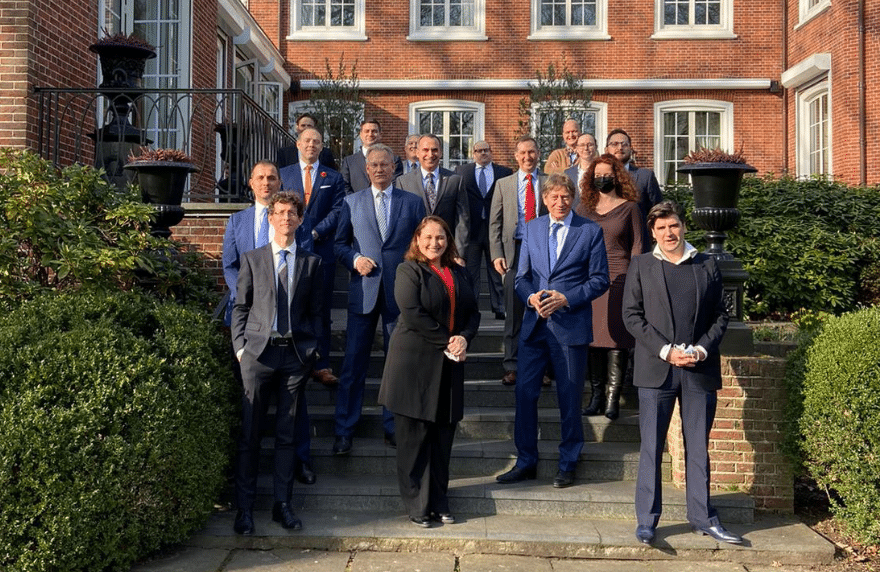 https://hcss.nl/wp-content/uploads/2021/04/20210324-US-Embassy-HCSS-4.png
572
880
login@hcss-site
https://hcss.nl/wp-content/uploads/2021/04/HCSS_Beeldmerk_Blauw_RGB1200-ppi-e1619025866259-300x300.png
login@hcss-site2021-03-25 12:27:002022-02-16 12:16:47Panel Discussion on Transatlantic Relations in an Age of Great Power Competition
https://hcss.nl/wp-content/uploads/2021/04/20210324-US-Embassy-HCSS-4.png
572
880
login@hcss-site
https://hcss.nl/wp-content/uploads/2021/04/HCSS_Beeldmerk_Blauw_RGB1200-ppi-e1619025866259-300x300.png
login@hcss-site2021-03-25 12:27:002022-02-16 12:16:47Panel Discussion on Transatlantic Relations in an Age of Great Power Competition


Understanding a changing relationship: From reports and papers, to policy briefs and snapshots, here you can find all HCSS research on The Future of Transatlantic Relations
 https://hcss.nl/wp-content/uploads/2021/08/Forum-essays-web-5-1.png
572
880
Patrick Willemsen
https://hcss.nl/wp-content/uploads/2021/04/HCSS_Beeldmerk_Blauw_RGB1200-ppi-e1619025866259-300x300.png
Patrick Willemsen2021-08-13 10:36:322022-07-13 12:08:34The EU Strategic Compass’ three principles: Inclusivity, integration, and implementation
https://hcss.nl/wp-content/uploads/2021/08/Forum-essays-web-5-1.png
572
880
Patrick Willemsen
https://hcss.nl/wp-content/uploads/2021/04/HCSS_Beeldmerk_Blauw_RGB1200-ppi-e1619025866259-300x300.png
Patrick Willemsen2021-08-13 10:36:322022-07-13 12:08:34The EU Strategic Compass’ three principles: Inclusivity, integration, and implementation https://hcss.nl/wp-content/uploads/2021/08/Forum-essays-web-4.png
572
880
Patrick Willemsen
https://hcss.nl/wp-content/uploads/2021/04/HCSS_Beeldmerk_Blauw_RGB1200-ppi-e1619025866259-300x300.png
Patrick Willemsen2021-08-06 10:59:002024-11-14 15:57:55NATO allies’ offensive cyber policy: A growing divide?
https://hcss.nl/wp-content/uploads/2021/08/Forum-essays-web-4.png
572
880
Patrick Willemsen
https://hcss.nl/wp-content/uploads/2021/04/HCSS_Beeldmerk_Blauw_RGB1200-ppi-e1619025866259-300x300.png
Patrick Willemsen2021-08-06 10:59:002024-11-14 15:57:55NATO allies’ offensive cyber policy: A growing divide? https://hcss.nl/wp-content/uploads/2021/08/Forum-essays-web-3.png
572
880
Patrick Willemsen
https://hcss.nl/wp-content/uploads/2021/04/HCSS_Beeldmerk_Blauw_RGB1200-ppi-e1619025866259-300x300.png
Patrick Willemsen2021-08-06 10:58:002022-07-13 12:07:32The transatlantic relationship: Radical reform is in the U.S. national interest
https://hcss.nl/wp-content/uploads/2021/08/Forum-essays-web-3.png
572
880
Patrick Willemsen
https://hcss.nl/wp-content/uploads/2021/04/HCSS_Beeldmerk_Blauw_RGB1200-ppi-e1619025866259-300x300.png
Patrick Willemsen2021-08-06 10:58:002022-07-13 12:07:32The transatlantic relationship: Radical reform is in the U.S. national interest https://hcss.nl/wp-content/uploads/2021/08/Forum-essays-web-2.png
572
880
Patrick Willemsen
https://hcss.nl/wp-content/uploads/2021/04/HCSS_Beeldmerk_Blauw_RGB1200-ppi-e1619025866259-300x300.png
Patrick Willemsen2021-08-06 10:57:002022-07-13 14:13:07Do we need a new vocabulary for talking about European strategy?
https://hcss.nl/wp-content/uploads/2021/08/Forum-essays-web-2.png
572
880
Patrick Willemsen
https://hcss.nl/wp-content/uploads/2021/04/HCSS_Beeldmerk_Blauw_RGB1200-ppi-e1619025866259-300x300.png
Patrick Willemsen2021-08-06 10:57:002022-07-13 14:13:07Do we need a new vocabulary for talking about European strategy?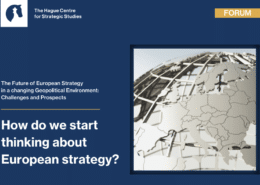 https://hcss.nl/wp-content/uploads/2021/08/HCSS-Forum-3-1.png
572
880
Patrick Willemsen
https://hcss.nl/wp-content/uploads/2021/04/HCSS_Beeldmerk_Blauw_RGB1200-ppi-e1619025866259-300x300.png
Patrick Willemsen2021-08-06 10:55:002022-07-13 11:59:18How do we start thinking about European strategy?
https://hcss.nl/wp-content/uploads/2021/08/HCSS-Forum-3-1.png
572
880
Patrick Willemsen
https://hcss.nl/wp-content/uploads/2021/04/HCSS_Beeldmerk_Blauw_RGB1200-ppi-e1619025866259-300x300.png
Patrick Willemsen2021-08-06 10:55:002022-07-13 11:59:18How do we start thinking about European strategy?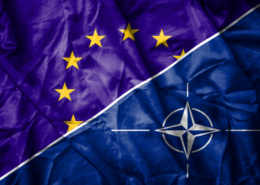 https://hcss.nl/wp-content/uploads/2020/10/Adjusting-the-Multilateral-System-to-Safeguard-Dutch-Interests-FI.png
572
880
paula@hcss-site
https://hcss.nl/wp-content/uploads/2021/04/HCSS_Beeldmerk_Blauw_RGB1200-ppi-e1619025866259-300x300.png
paula@hcss-site2020-10-01 08:33:172022-07-04 15:48:30Adjusting the Multilateral System to Safeguard Dutch Interests
https://hcss.nl/wp-content/uploads/2020/10/Adjusting-the-Multilateral-System-to-Safeguard-Dutch-Interests-FI.png
572
880
paula@hcss-site
https://hcss.nl/wp-content/uploads/2021/04/HCSS_Beeldmerk_Blauw_RGB1200-ppi-e1619025866259-300x300.png
paula@hcss-site2020-10-01 08:33:172022-07-04 15:48:30Adjusting the Multilateral System to Safeguard Dutch Interests https://hcss.nl/wp-content/uploads/2020/09/Samenvatting-Adjusting-the-Multilateral-System-FI.png
572
880
paula@hcss-site
https://hcss.nl/wp-content/uploads/2021/04/HCSS_Beeldmerk_Blauw_RGB1200-ppi-e1619025866259-300x300.png
paula@hcss-site2020-09-28 11:32:262022-07-04 15:49:26Samenvatting nieuw rapport: De Nederlandse Belangen en het Multilaterale Systeem
https://hcss.nl/wp-content/uploads/2020/09/Samenvatting-Adjusting-the-Multilateral-System-FI.png
572
880
paula@hcss-site
https://hcss.nl/wp-content/uploads/2021/04/HCSS_Beeldmerk_Blauw_RGB1200-ppi-e1619025866259-300x300.png
paula@hcss-site2020-09-28 11:32:262022-07-04 15:49:26Samenvatting nieuw rapport: De Nederlandse Belangen en het Multilaterale Systeem https://hcss.nl/wp-content/uploads/2020/09/NATO-Symposium-Capstone-FI.png
572
880
paula@hcss-site
https://hcss.nl/wp-content/uploads/2021/04/HCSS_Beeldmerk_Blauw_RGB1200-ppi-e1619025866259-300x300.png
paula@hcss-site2020-09-15 10:13:382022-07-13 11:29:05NATO Warfighting Capstone Concept: Key Insights from the Global Expert Symposium
https://hcss.nl/wp-content/uploads/2020/09/NATO-Symposium-Capstone-FI.png
572
880
paula@hcss-site
https://hcss.nl/wp-content/uploads/2021/04/HCSS_Beeldmerk_Blauw_RGB1200-ppi-e1619025866259-300x300.png
paula@hcss-site2020-09-15 10:13:382022-07-13 11:29:05NATO Warfighting Capstone Concept: Key Insights from the Global Expert SymposiumYour privacy is important to us. Here you can set which consent you are allowing us with regards to the collection of general information, the placing of cookies of the collection of personal information. You can click 'Forget my settings' at the bottom of this form to revoke all given consents.
Privacy policy | CloseYour privacy is important to us. Here you can set which consent you are allowing us with regards to the collection of general information, the placing of cookies of the collection of personal information. You can click 'Forget my settings' at the bottom of this form to revoke all given consents.
Website statistics collect anonymized information about how the site is used. This information is used to optimize the website and to ensure an optimal user experience.
Functional cookies are used to ensure the website works properly and are neccessary to make the site function. These cookies do not collect any personal data.
View details